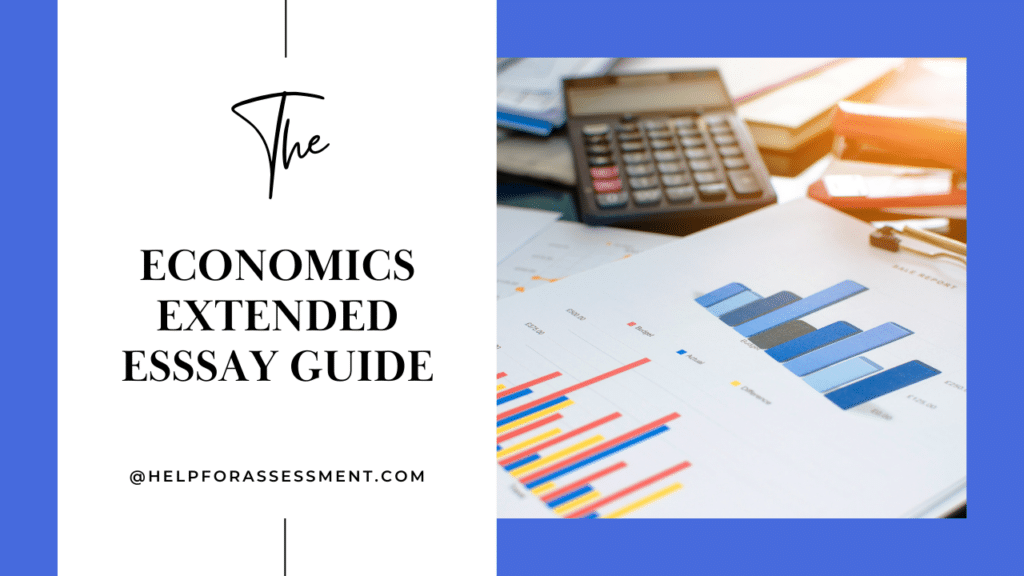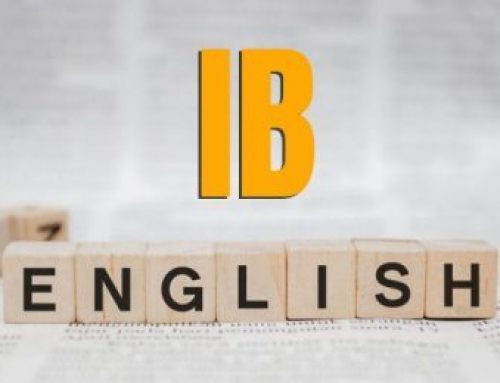Example 15 mark essay in style of IB Economics Paper 1
How should you structure a 15 mark question?
Because of multiple requests from students, I have created a 15 mark model answer in style of IB Economics paper 1.
This is based on the new IBDP Economics syllabus.
For 24 model answers to 15 mark paper 1 questions, check out the links below:
For more exam tips for IB Economics HL, check out the links below:

Question for model answer
Here is a practice question I have created:
Using real world examples, evaluate the effectiveness of contractionary monetary policy in reducing inflation (15 marks)
Brief essay plan
Here is a quick plan:
- Point 1: Effect of higher interest rates on consumption, investment and AD and hence inflation.
- Evaluation 1: But this depends on the importance of interest rate decisions for (consumption /) investment decisions.
- Point 2: Effect on exchange rates and net exports
- Evaluation 2: But depends on what happens to other interest rates around the world e.g. US rising rates.
- Point 3 (optional): Effect of quantitative tightening (opposite of quantitative easing) on investment and AD and hence inflation.
- Evaluation 3 (optional): But this depends on the level of spare capacity.
- Examples: UK interest rate rises / inflation, US interest rate rises, UK quantitative tightening.
Example model answer
Contractionary monetary policy includes raising interest rates and reversing quantitative easing. Interest rates are the cost of borrowing and the reward from saving. Interest rates are currently rising in the UK in response to high inflation.
Higher interest rates are likely to reduce aggregate demand. Interest rates increased from 0.25% to 3% in the UK over 2022. Higher interest rates increase the reward for saving, increasing the incentive to save. So saving increases and consumption falls. Higher interest rates increase the cost of borrowing, so consumers who borrow e.g. with a mortgage face higher bills and so are more likely to cut consumption. As a result of higher borrowing costs, firms are less likely to borrow to invest, which reduces investment. As consumption and investment are components of aggregate demand (AD=C+I+G+X-M), AD falls and shifts left from AD to AD1. There could also be a negative multiplier effect, where a one off fall in AD leads to a further fall in AD and real GDP, as shown by the shift left in AD from AD1 to AD2. This is because, for example, reduced investment means reduced profits for other firms, who cut workers’ wages. Workers then go on to cut their own consumer spending, reducing the incomes for local shop owners and so on. This means real GDP falls from Y to Y2 and there is a decrease in the price level from PL to PL2. This is likely to reduce the rate of inflation.

But this depends on the importance of interest rate changes for consumption and investment decisions. For example most mortgages in the UK are fixed rate mortgages rather than variable rate mortgages, with 82% of mortgage borrowing on fixed rates in the UK. Those on fixed rate mortgages may face less of an immediate increase in mortgage borrowing costs as interest rates rise, as the rates are likely to have been fixed in advance of the rate rise. Though many fixed rate mortgages may be short term, so these fixed rate mortgages are likely to be renewed with updated rates, with most mortgages expected to be renewed before 2025. While some mortgage holders may be protected in the short run, higher interest rates are likely to have a significant effect through mortgage costs.
A higher interest rate, relative to rates in other economies, leads to a higher rate of return on assets or savings in the UK. This leads to hot money flows into the UK economy. To buy UK assets or to put money in a UK bank, international investors are likely to need to convert currency into pounds. This increases demand for the currency, which shifts right from D to D1 leading to an appreciation of the pound from P to P1. This makes exports more expensive and imports cheaper, reducing export demand and increasing import demand. Provided the Marshall-Lerner condition holds, that the PED of exports and the PED of imports sum to 1 or more, this will result in reduced net exports, leading to lower AD as net exports is a component of AD. This will cause reduced real GDP and reduced employment because demand for workers is derived from demand for goods and services. Employment is most likely to fall particularly in industries that export heavily, such as gold, cars, airplanes, pharmaceuticals and oil – these exports account for nearly 28% of UK exports.

But this depends on what happens to other interest rates around the world. At the same time, we have also seen rising interest rates in the US, as the Federal Reserve central bank also tries to control inflation. This means there may be less of a difference in the US and UK rates of return, reducing the likelihood of significant hot money flows to the UK as a result of higher interest rates. Indeed we have seen increased strength of the US dollar relative to the pound in September 2022, which may have resulted from hot money flows into the US. So higher interest rates in the UK are unlikely to have a significant positive effect on net exports.
Quantitative tightening is the reverse of quantitative easing. Quantitative tightening means the central bank, for example the Bank of England, sells government bonds (that it had previously purchased with digitally created money). This increases the supply of government bonds, reducing their price and increasing their quantity. Reducing the bond price raises interest rates on government bonds. Bondholders such as commercial banks now receive a higher return on holding bonds relative to giving out loans. This means banks buy more bonds, leaving reduced cash available for lending, and so commercial banks reduce the supply of loanable funds, reducing the amount of total investment in the economy. This will reduce aggregate demand and hence inflation.The total value of assets under the quantitative easing scheme in the U.K. reached £895 billion. The Bank of England plans to engage in quantitative tightening of about £80 billion in 2023.
But this depends on the position of the economy on the Keynesian LRAS. If the economy has high spare capacity, then the economy is on the horizontal part of the Keynesian LRAS curve. This means a shift left in AD leads to a significant fall in real GDP and little change in inflation. The Bank of England currently judges there is little spare capacity in November 2022 but over the medium term weak demand is likely to mean higher spare capacity. So in the medium term quantitative tightening may have less of an effect on reducing inflation.
Overall contractionary monetary policy is likely to reduce inflation, reduce real GDP and reduce employment. While the direction of the effects is mostly clear, the magnitude is less clear. The most important effect is through the mortgage market, which is likely to be larger in the medium term rather than the short run as consumers renew their fixed mortgages. The effects of contractionary monetary policy also depend on the stance of fiscal policy. If fiscal policy is expansionary, e.g. increased government spending without higher taxes, then this may negate the effect of contractionary monetary policy on inflation. As interest rates rise in the UK, fiscal policy was briefly expansionary with announcements of tax cuts and spending on the energy support scheme, yet the fiscal policy has become less expansionary under Chancellor Jeremy Hunt, with tax rises for example on middle and higher earners announced. This means monetary policy is likely to be more effective in reducing inflation.
This answer features detailed analysis, with use of graphs.
There are real world examples throughout. Here I have mainly focussed on the UK example. But you can tailor your answer to another country.
For data on the UK economy, I recommend two sources: Trading Economics and the Bank of England’s monetary policy reports .
There is also evaluation and a solid conclusion.
There are also some definitions of key terms where relevant.
This answer would likely score full marks or close to it.
Other questions
How many words / how much time for a 15 mark question in ib economics paper 1.
The word count is somewhat arbitrary – it depends on how succinctly you can express ideas.
Given the time limits in the exam, most top 15 mark answers I observe reach a word count between 700 and 1100 words..
I recommend spending 45 minutes on the 15 mark question. I also recommend a quick plan in this time (just so you know the points, evaluation and example(s) you will use.
Note the timing and requirements may be different for questions in papers 2 and 3.
How should I structure a 15 marker for paper 1 IB?
- Introduction
- Point 1 (analysis and example)
- Evaluation 1
- Point 2 (analysis and example)
- Evaluation 2
- [Optional: third point and evaluation, depending on length of first two points].
How do you write conclusions in IB Economics?
There are a few key steps for conclusions:
- Pick a side / answer the question!
- Justify your decision.
- Bring in context.
- Bring in one other evaluative point on which your answer may depend.
What are the most common mistakes to avoid?
- Forgetting application – make sure to revise your real-world examples. Include your real world examples in your plan.
- Forgetting evaluation or not knowing the evaluation points to write . Practise the most common evaluation points. Here for example, spare capacity is a key evaluation point you can use for any AD shift.
- Analysis issues in particular graph sketching . Practise graphs so that you have the key graphs memorised. This includes supply and demand, cost and benefit, cost and revenue, AS-AD and tariff diagrams. Analysis issues are harder to solve – you have to understand the content well and practise key chains of analysis for each key area of the course.
- Poor conclusion . A poor conclusion may just summarise the arguments already made (adding no value). Alternatively it may not answer the question given. Remember to start with a decision on the question and justify it. I recommend practising using the conclusion framework above.
Related posts
For more resources on economics university applications or economics exam technique, check out the links below:
Latest posts
- 12 Practice Papers for A Level Economics 2024
- The economics of why people give gifts
- 11 Practice Questions in style of Edexcel Economics Paper 2
- What economic theory says about immigration
- 25 Practice Questions in style of Edexcel Economics Paper 1
About the author
Helping economics students online since 2015. Previously an economist and economics tutor, I now focus on providing economics resources on tfurber.com . Read more about me here .
The Curious Economist
Economic news for students.
- [ April 30, 2024 ] Germany Unemployment Forecast for a Decade High Aggregate Demand and Supply
- [ April 29, 2024 ] India Set to Overtake Japan as World’s Third Largest Economy by 2025 Aggregate Demand and Supply
- [ April 17, 2024 ] UK Aiming to Snub Out Smoking For Good Economic News
- [ April 16, 2024 ] China’s Economy Surges with High-Tech Manufacturing Boost Aggregate Demand and Supply
- [ April 15, 2024 ] CHIPS act to fuel Samsung’s Texas Expansion Consumer and Business Behaviour
Model 15-Markers

Unlock your potential with these IB economics model answers, designed to provide a deeper understanding of key topics and real-world examples.
By studying these model answers, you’ll gain a solid foundation in economic concepts, learn how to structure your essays effectively, and develop critical analysis skills. As you explore the real-world examples provided, you’ll also gain an appreciation for the complexities and nuances of economic policies and their impacts on various societies.
Our goal is to empower you with the knowledge and confidence needed to succeed in your IB economics journey, ensuring that you’re well-equipped to tackle any question or challenge that comes your way.
Click on the questions below to see a model essay!
Microeconomics
Using real-world examples, discuss the consequences of a price ceiling on stakeholders
Using real-world examples, evaluate different approaches to managing common access resources
Using real-world examples, evaluate the policies a government might adopt to respond to a market situation in which significant asymmetric information exists
Using real-world examples, evaluate the effects for stakeholders of a government imposing an indirect tax on a particular good
Using real-world examples, evaluate the view that government regulation is the most effective way to deal with negative externalities of consumption
Using real-world examples, evaluate the view that governments should always try to prevent the creation of barriers to entry in a market.
Using real-world examples, evaluate the impact of large firms having significant market power.
Macroeconomics
Using real-world examples evaluate the claim that according to the Keynesian and monetarist models a decrease in AD will always be deflationary.
Using real-world examples evaluate the view that economic growth will always lead to an improvement in living standards
Using real-world examples, evaluate the effectiveness of monetary policy to achieve low unemployment
Global Economy
Using real-world examples, discuss the possible implications of a persistent current account deficit
Using real-world examples, discuss the consequences of a fall in a country’s exchange rate
Copyright © 2024 | MH Magazine WordPress Theme by MH Themes

- Customer Reviews
- Extended Essays
- IB Internal Assessment
- Theory of Knowledge
- Literature Review
- Dissertations
- Essay Writing
- Research Writing
- Assignment Help
- Capstone Projects
- College Application
- Online Class
Economics Extended Essay Guide: Everything You Need to Learn
by Antony W
April 18, 2024

This guide covers everything you need to learn before you write an IB Economics Extended Essay.
We look at the definition, structure, assessment criteria, topic selection, data collection, analysis and evaluation, and reflection.
What is an IB Economics Extended Essay?
An Economics Extended Essay is a 4,000-word autonomous, self-directed report based on a topic of personal interest. This project allows you to:
- Improve your research skills.
- Apply economic theories to a real-world issue.
- Analyze and evaluate the outcomes of your study.
The essay requires 40 hours of preparation and writing. Moreover, you’ll get help from your school-based supervisor throughout this period. The result should be a clear and well-organized analytical essay.
To write a comprehensive Economics EE, you must dedicate time to conduct in-depth research to collect meaningful and reliable data you can use to analyze the context of your theory and research issue.
IB Economics Extended Essay Structure
Your Economics EE should feature a title page, table of contents, introduction, methodology, main body, conclusion, bibliography, and appendices.
- Title Page: Write the title of the essay, the EE research question , subject, and word count.
- Table of Contents: Make sure each section mentioned in your table of contents has corresponding page numbers.
- Introduction: Explain the focus of the essay, the scope of the research, and your line of argument.
- Main Body: Write reasoned arguments for the issue under investigation. Use subheadings for methodology, analysis, discussion, and evaluation.
- Conclusion: Communicate what you’ve achieved. Mention the limitation of your research and note what your research question couldn’t answer.
- Bibliography: Cite all the EE sources to demonstrate that you engaged in in-depth research and that you care about academic integrity.
IB Economics Extended Essay Assessment Criteria
The assessment criteria for an extended essay in economics examine focus and method, knowledge and understanding, critical thinking, presentation, and engagement. The following table is a complete summary of the marking scheme.
Economics Extended Essay Topic Selection
The best economics EE topic is the one that you find interesting enough to explore, as long as the focus remains on the fundamentals of economic concepts.
We strongly suggest you choose a topic that allows you to apply economic theories, methods and instruments present in the curriculum. Remember, the assignment requires you to conduct secondary research. However, you may also conduct pertinent original research depending on the topic you choose.
Your topic should:
- Be historical. However, your focus should be on a research issue that’s no more than five years old.
- Allow you to use economic theories and concepts to answer your research question.
- Provide opportunities for critical analysis of the information and data collected.
- Allow enough room for analysis while sticking to the scope of the essay.
Don’t choose a broad topic because the essay needs critical and reflective thinking and analysis on something specific. And don’t pick an excessively narrow theme because you may not have access to specific data.
So choose your topic wisely, making sure that it isn’t too wide or too narrow to fit within the scope of the EE’s requirements.
Data Collection in Economics Extended Essay
You have to conduct original research on topics covered in the economics curriculum. Therefore, spend just enough time establishing value for your topic in microeconomics, macroeconomics or the global economy.
Doing original research goes a long way to show that the title and the research question is an issue unanswered by secondary sources.
If you’ve decided to write an EE on microeconomics, you may have to use primary research in the form of surveys, questionnaires, or interviews with pertinent businesspeople direct to the study subject.
Themes from macroeconomics and the global economy require more secondary research in the form of data extraction from published academic papers, historical records, government publications, newspaper/online articles, and statistical databases.
Analysis and Evaluation in Economics EE
The analysis of your economics extended essay can only be effective if you use pertinent economic theories to analyze data collected.
You have to incorporate applicable economic theories, models, and methods in your research’s findings.
For example, you can exhibit critical analysis and evaluation by a sound assessment and judgment of the amount to which the applicable economic theory is beneficial in addressing your research question .
If you cannot establish relevant connections between your selected topic and the research question, avoid establishing knowledge claims based on economic theories, models, and instruments.
Criterion C of the assessment instrument requires you to provide precise findings for each analyzed point, and there has to be interim conclusions throughout your writing.
Demonstrate knowledge and understanding of the limitations of your own research, flaws in the economic theories, and underlying assumptions of the models utilized when developing your arguments. Also, evaluate the extent to which an economic theory may or may not describe your topic.
IB Economics EE Reflection Session
Being reflective is one of the IB learner profile characteristics, and it is now a formal requirement of the EE evaluation criteria.
IB uses the Reflections on Planning and Progress Form (RPPF), which has a 6-point value, to evaluate reflections. This is a substantial amount of points, which can determine the distinction between two grades on the final examination.
As part of the EE requirements, you will be required to hold three mandatory reflection sessions with your supervisor, and each of these reflection sessions appear on the official RPPF.
Reflection in the EE focuses on the process of the assignment itself.
Consider the following areas of reflection for each portion of the RPPF:
- How did you overcome the problems, setbacks, and barriers you encountered, and what did you learn in the process?
- Which of the IB learner profile characteristics apply to you?
- What did you learn, and did new views emerge?
The maximum word count for all three reflections is 500. You must write the reflection in your own word and pertain only to your personal learning journey throughout the course.
About the author
Antony W is a professional writer and coach at Help for Assessment. He spends countless hours every day researching and writing great content filled with expert advice on how to write engaging essays, research papers, and assignments.
How to Write a Good Economics Essay
Governor November 28, 2019 Real World Applications 3 Comments
Many students ask “How to write an economics essay?” This Guide to Writing a Good Economics Essay is applicable to both IB economics as well as the Singapore JC A-Level H2 economics examinations. Many of the pointers here are also applicable to large-mark case study questions.
6 Steps to Writing a Good Economics Essay
Step 1: dissect the question.
Make sure you analyse and fully understand the KEYWORDS and REQUIREMENTS of the question. This is a very important skill that is taught in our economics tuition classes .
For example, “Best”, “Most Effective” are closely related but mean different things.
Paraphrase the question to make it simpler if necessary.
Take note of the command word (eg: Explain, Discuss) as it determines the approach needed for the essay, for example, whether two sides are needed or one side is sufficient. Below are some common examples found in economics essay questions:
Command Words Action Required
Account for Explain why
Analyse Break it down into step-by-step explanations
Assess For & Against. Consider other factors.
Compare Identify Similarities & Differences
Distinguish Point out differences
Discuss Explore both sides
Evaluate The Good and The Bad.
Explain Show why and how
Explain whether Cover both possibilities
Examine Look closely. How so and how not so?
To What Extent Yes…..But….Judgment
Remember to look out for the context in the question. This is usually given in the form of a country (eg: Singapore). The examples in your essay must be tailored to this particular context (for example, do not suggest interest rate policy for Singapore as that is considered infeasible in the Singapore context). If no context is given, any real-world example can be used.
Keep in mind the question throughout the essay and remember to always answer the question. Don’t go off-point!
Common Examiner’s Comment : Not Answering Question (NAQ))
Step 2: Plan Your Answer
Take some time to consider what economic framework you will use to approach the question. Scribble down your main thesis and anti-thesis points. Ensure they ANSWER THE QUESTION.
Step 3: Essay Introduction
In the introduction, include definitions of keywords in the question and spell out the economic framework you will employ for your answer as well as key definitions.
Step 4: Body of Essay
In the body , there will be several paragraphs.
The number of points/paragraphs depends on the question. It is common to require 2 main points for each 10 mark essay and similarly for 15 mark essay questions. Under each main point, there may be 1-2 sub-points.
Use one paragraph for each sub-point you are making.
However, do not be too focussed on the number of points or paragraphs. The key is to answer the question.
For each body paragraph , use TET’s PEEL(ED) structure. Include only one main idea per paragraph.
- Point – Write your point in the first sentence so that markers will know what the paragraph will be about. The topic sentence must directly answer the question!
- Explanation – Explain what you mean
- Elaboration – Provide further analysis with clear step-by-step economic reasoning. This part may be done with examples as well as diagrams.
- Link – Link your explanations back to the Point and to answer the question.
- Exemplification – Give an example to support your reasoning. It can be statistics or real-world examples (for Case Studies, evidences from the Case must be uncovered!)
- Diagram – Where possible, araw an appropriate diagram with correct labelling and refer to it in your answer. This is crucial to show economic reasoning. Diagrams are very important for economics essays!
These are of course much easier said than done! Thus, students in our economics tuition classes are regularly honed to achieve such output including with tips and tricks to spark off the correct thinking process.
Our resources including the Study Guides for A Level and IB economics also provide a very powerful and handy reference on the depth of analysis required to score the highest marks.
Common Examiner’s Comment : Mere statements and claims. No economic rigour.
Step 5: In-Body Evaluation
This applies especially to the 15 mark essays for A-Level Economics. A total of 5 marks is catered for Evaluation. Students should attempt to achieve about 2-3 in-body evaluation marks by pointing out how the thesis and anti-thesis points may not be true due to certain assumptions made that may not hold. Students may write “However,….may not necessarily happen……It would depend on whether….”. This statement can be written after the associated sub-point has been made.
Step 6: CONCLUDING SECTION
This only applies to the 15 mark essay questions.
Earn more evaluation marks by making a reasoned judgement. Deliver your verdict like a Judge!
Check back on the question before you embark on this. Ensure your judgement answers the question.
So the question now is, how does a judge arrive at and deliver a verdict? Certainly, you should not be summarising or merely paraphrasing your main points in the conclusion. Obviously, you cannot expect more marks by saying the same thing over and over again!
After a verdict and reasons have been provided, consider providing further relevant insights and/or recommendations.
Common Examiner’s Comment : Repetitive. Mere Summary.
Here are some quite common types of Concluding Sections
- Consider the relative importance of thesis and anti-thesis factors. Which factors are most important or pertinent in the given context? For example, certain policies better fit specifc types of economies.
- Consider short-term vs long-term pros and cons. Do the short-term benefits outweigh the long-term costs? Is the policy more effective in the long-term, and if so, how pressing is the problem that needs to be addressed?
- Suggest a multi-policy approach, in which each policy has strengths and weaknesses that allow them to complement each other.
There is no way to really memorise evaluation points as every question and context is different. After all, you are being tested on higher-order thinking!
There are other evaluation tips that our students will receive but the key point here is that the training of the mind to think and apply economics is essential. That is where our weekly economics lessons come into play and that is why our students are often asked questions in class and trained to think on their feet. As ex-student Xue Min from YIJC testified, Chief Tutor Mr. Kelvin Hong does not just spoon-feeds our students but mentors them in their thinking to arrive at the answers. This was different from other tutors that her classmates experienced and eventually this was the key to Xue Min’s A grade.
In your essay, write in simple and clear sentences. Everything you write should be value-adding. You do not have to spend time showing off vocabulary as no extra points are awarded for language. Focus on economic reasoning. Use succinct and effective examples which support the point you are trying to make as well as accurate diagrammatic analyses.
For samples of great economics essays, please check out our free Economics Model Essays and sample Past JC A-Level Economics Questions and Answers .
For our econs publications that are sold worldwide, please check out our A Level & IB Economics Study Guides and Model Essays Publications
About The Economics Tutor
Founded by Kelvin Hong in 1998, The Economics Tutor is one of the leading economics tuition in Singapore. We provide a comprehensive program to guide students in understanding complex economic concepts and applying them through case study analyses, essay writing and discussion of real world events.
For 24 years, the way we teach JC Economics Tuition (A Level Economics Tuition) and IB Economics Tuition classes helped learners appreciate economics and everything it entails on a much larger scale. We take things step-by-step, implement effective techniques in memorising frameworks and give every student the chance to nurture their ideas.
We don’t just solely focus on helping you get stellar grades and perfect scores. We make sure that we also hone the critical thinking skills and investment / business decisions you can use outside the four walls of your classroom.
Looking for a fun, engaging and probably the best economics tutor in Singapore? Look no further—check out our extensive and high quality economics resources on the website such as our IB and A Level Economics Publication. Click here to order .
Book your lesson today and master the nuances of economics in our next class!
its good knowledgeable post regarding ib economics commentaries. i just wanted to admin can i use your blog as reference to my students .
Go ahead. We are all for helping students learn economics well.
Thank you, A lot of info!
Leave a Reply Cancel reply
Your email address will not be published. Required fields are marked *
Save my name, email, and website in this browser for the next time I comment.
See You In Our Next Econs Lesson!
5.0 stars out of 130 G o o g l e reviews
#1 Economics Tuition Singapore – Kelvin Hong - The Economics Tutor
- +65 9336 7511
- [email protected]
- About JC A Level Economics
- About IB Economics
- Testimonials
- A Level & IB Economics Study Guides and Model Essays
- Blog Resources
- Economics Videos
- Economics Notes, Infographics & Mindmaps
- Real-World Examples
- Economics Definitions
- Past A Level Economics Questions & Answers
- Fees & Schedule
- Register / Schedule a Class
- Bishan Economics Tuition
Copyright © 2024 The Economics Tutor

Choose Your Test
Sat / act prep online guides and tips, the best ib economics notes and study guide for sl/hl.
International Baccalaureate (IB)

Are you taking IB Economics but feel you aren't learning enough from your class alone? Maybe you need more explanation of certain economics topics? If you need some help in your IB Economics SL/HL class, this study guide is for you. I've gathered all of the best free IB Economics study guides and notes into one useful article. This IB Economics study guide is organized according to the IB Economics HL syllabus and IB Economics SL syllabus.

2022 IB Exam Changes Due to COVID-19
Because of the ongoing COVID-19 (coronavirus) pandemic, the IB has decided to extend the adaptations which were put in place for 2021 to 2022. May 2022 IB assessments will have two routes, exam and non-exam, depending on which your school chooses. Stay up to date with the latest information on what this means for IB diplomas, course credit for IB classes, and more with our our IB COVID-19 FAQ article .
How to Use These IB Economics Notes and Study Guide
If you are looking for help with one topic, use the Command + F function on your keyboard to search this article for that topic. For instance, if you want to learn more about Markets, use Command + F to bring up the search function. Type in "Markets” and it'll bring up all of the study materials for Markets.
I separated the resources into:
- Quick reference: one-page summary of material if you just need a quick refresher.
- Longer notes: notes (generally 3-10 pages) if you need more of an in-depth explanation.
How Should You Use This Article During the School Year?
If there are any subjects that you feel you don't completely understand after learning them in class, use these notes to review them and fill any knowledge gaps. You should also use these notes to regularly review past topics you covered in class to be sure you don't forget earlier topics and have to cram right before the exam.
To score well on the IB Economics exam, you should be studying and reviewing the topics you cover in class throughout the year. This will help you cement this information in your mind so you're not struggling for answers on test days.
In addition to these notes, you should also take several practice tests. This will help you test your knowledge and get a better idea of how well you'll score on test day. Find IB Economics HL and IB Economics SL past papers, Free and Official, in our other article .
Common Study Mistakes for IB Economics SL/HL
It's important to avoid falling behind in IB Economics SL/HL; there's just too much material to learn easily if you get significantly behind. You need to master the topics during the school year to ace your IB Economics papers. Some common mistakes are:
- Avoiding topics you don't understand in class. If you didn't learn it in class, you need to look for help elsewhere whether through this IB Economics study guide or tutoring.
- Waiting to study until a week or two before the papers. There are a lot of concepts to master. A week or two is not enough time to learn them all (that is why IB Economics is taught over 1 to 2 years). Learn the topics as you're supposed to learn them in class. Use this study guide if you need extra help.

Section 1: Introduction to Economics (10 Hours SL and HL)
1.1 What is economics?
- Longer notes: Basic Definitions
- Quick reference: IB Economics Introduction (videos included)
- Video reference: Introduction to the New IB Economics Syllabus
1.2 How do economists approach the world?

Section 2: Microeconomics (35 Hours SL/70 Hours HL)
- Longer notes: PPF and PPC
- Longer notes: Free Market vs. Planned Economy
- Longer notes: Theory of the Firm (HL)
2.1 Demand
- Quick reference: Markets
- Longer notes: Markets
- Quick reference: Demand
- Quick reference: Market efficiency
- Quick reference: Supply
2.3 Competitive market equilibrium
- Quick reference: Market equilibrium
- Quick reference: The role of the price mechanism
2.4 Critique of the maximizing behavior of consumers and producers
- Quick reference: Rational consumer choice
- Flash cards
2.5 Elasticity of demand
- Longer notes: Elasticities
- Quick reference: Price elasticity of demand (PED)
- Quick reference: Cross price elasticity of demand (XED)
- Quick reference: Income elasticity of demand (YED)
2.6 Elasticity of supply
- Quick reference: Price elasticity of supply (PES)
2.7 Role of government in microeconomics
- Quick reference: Government intervention—indirect taxes
- Quick reference: Government intervention—maximum price
- Quick reference: Government intervention—minimum price
- Quick reference: Indirect taxes
- Quick reference: Subsidies
- Quick reference: Price controls
2.8 Market failure—externalities and common pool or common access resources
- Longer notes: Market Failure
- Quick reference: The meaning of market failure
- Quick reference: Types of market failure
2.9 Market failure—public goods
- Longer notes: Market failures, public goods, and externalities
- Quick reference: Public goods and market failure
2.10 Market failure—asymmetric information (HL only)
- Longer notes: Asymmetric information
2.11 Market failure—market power (HL only)
- Quick reference: Defining market failure
- Quick reference: Market power definition
2.12 The market’s inability to achieve equity (HL only)
- Quick reference: Unequal distribution of income
Section 3: Macroeconomics (40 Hours SL/75 Hours HL)
- Longer notes: Measuring National Income
- Longer notes: Introduction to Development
- Longer notes: Unemployment and Inflation
- Longer notes: Distribution of Income
3.1 Measuring economic activity and illustrating its variations
- Longer notes: Measuring economic activity
3.2 Variations in economic activity—aggregate demand and aggregate supply
- Longer notes: Aggregate demand and aggregate supply curves
- Longer notes The long run and the short run
- Quick reference: Aggregate supply and aggregate demand
3.3 Macroeconomic objectives
- Longer notes: Macroeconomic Models
3.4 Economics of inequality and poverty
- Longer notes: How are inequality and poverty linked?
- Longer notes: Economics of inequality and poverty
3.5 Demand management (demand-side policies)—monetary policy
- Longer notes: Demand-side policies
- Quick reference: Demand management policies
- Quick reference: Definition of monetary policy
- Quick reference: Monetary policy vs. fiscal policy
3.6 Demand management—fiscal policy
- Quick reference: Definition of fiscal policy
- Quick reference: Role of the fiscal policy
3.7 Supply-side policies
- Longer notes: Demand-side and Supply-side policies
- Longer notes: Supply-side policy
- Quick reference: Supply-side policies definition
Section 4: Development Economics
4.1 Benefits of international trade
- Longer notes: Reasons for trade
- Longer notes: Free trade and protectionism
- Longer notes: World Trade Organization (WTO)
4.2 Types of trade protection
- Longer notes: Examples and types of protectionism
- Quick reference: Protectionism definition
- Quick reference: International trade—tariffs
- Quick reference: International trade—quota
4.3 Arguments for and against trade control/protection
- Longer notes: Terms of trade
- Longer notes: Arguments for trade protection
- Quick reference: Arguments against import protectionism
- Quick reference: Arguments for and against free trade
4.4 Economic integration
- Longer notes: Economic integration definition
- Longer notes: Economic integration
4.5 Exchange rates
- Longer notes: Exchange rates
- Quick reference: Exchange rates definition
4.6 Balance of payments
- Longer notes: Balance of payments
- Longer notes: Balance of Payment problems
4.7 Sustainable development
- Longer notes: Sustainable development
4.8 Measuring development
- Longer notes: Measuring development
- Longer notes: Measuring development (with videos)
- Quick reference: Single indicators and composite indicators
4.9 Barriers to economic growth and/or economic development
- Longer notes: Consequences of Growth
- Longer notes: Barriers to Economic Growth
4.10 Economic growth and/or economic development strategies
- Longer notes: Sources of Economic Growth and/or Development
- Longer notes: Growth and Development Strategies
- Longer notes: Evaluation of Growth and Development Strategies

What's Next?
Want some more IB Economics study materials? Check out our guide to every IB Economics past paper available , including free and official papers.
Looking for more info on what IB Economics covers? Read our complete guide to the IB Economics syllabus to learn every topic that will be covered in the course.
Wondering which other IB classes you can take? Take a look at the complete list of IB courses to see what your options are.

As an SAT/ACT tutor, Dora has guided many students to test prep success. She loves watching students succeed and is committed to helping you get there. Dora received a full-tuition merit based scholarship to University of Southern California. She graduated magna cum laude and scored in the 99th percentile on the ACT. She is also passionate about acting, writing, and photography.
Ask a Question Below
Have any questions about this article or other topics? Ask below and we'll reply!
Improve With Our Famous Guides
- For All Students
The 5 Strategies You Must Be Using to Improve 160+ SAT Points
How to Get a Perfect 1600, by a Perfect Scorer
Series: How to Get 800 on Each SAT Section:
Score 800 on SAT Math
Score 800 on SAT Reading
Score 800 on SAT Writing
Series: How to Get to 600 on Each SAT Section:
Score 600 on SAT Math
Score 600 on SAT Reading
Score 600 on SAT Writing
Free Complete Official SAT Practice Tests
What SAT Target Score Should You Be Aiming For?
15 Strategies to Improve Your SAT Essay
The 5 Strategies You Must Be Using to Improve 4+ ACT Points
How to Get a Perfect 36 ACT, by a Perfect Scorer
Series: How to Get 36 on Each ACT Section:
36 on ACT English
36 on ACT Math
36 on ACT Reading
36 on ACT Science
Series: How to Get to 24 on Each ACT Section:
24 on ACT English
24 on ACT Math
24 on ACT Reading
24 on ACT Science
What ACT target score should you be aiming for?
ACT Vocabulary You Must Know
ACT Writing: 15 Tips to Raise Your Essay Score
How to Get Into Harvard and the Ivy League
How to Get a Perfect 4.0 GPA
How to Write an Amazing College Essay
What Exactly Are Colleges Looking For?
Is the ACT easier than the SAT? A Comprehensive Guide
Should you retake your SAT or ACT?
When should you take the SAT or ACT?
Stay Informed
Get the latest articles and test prep tips!
Looking for Graduate School Test Prep?
Check out our top-rated graduate blogs here:
GRE Online Prep Blog
GMAT Online Prep Blog
TOEFL Online Prep Blog
Holly R. "I am absolutely overjoyed and cannot thank you enough for helping me!”

IB Economics EE examples
Filter exemplars, to what extent has the vehicular emissions scheme (ves) been effective in increasing the consumption of light electric vehicles between 2018 and 2020 in singapore, to what extent is the effectiveness of nudges in uk schools in order to increase higher gcse outcomes and is there any relation to school x, want to get full marks for your ee allow us to review it for you 🎯, to what extent did the covid-19 pandemic influence the levels of unemployment in kenya’s economy in 2020, to what extent does the provision of covid-19 vaccines by the government of malaysia through the national covid-19 immunisation programme (ncip) effective to recover the gdp and reduce the unemployment rate in malaysia, how are savings the major determinant of the productivity of home-based garment workers in south delhi, fast track your coursework with mark schemes moderated by ib examiners. upgrade now 🚀, following covid-19, which market structure best describes the structure of bangkok's cinema industry today, assessing the differences in economic performance between north and south korea caused by their contrasting economic systems, investigating the effect of china's recent steel cap policy on both global iron ore prices and brazil's iron ore export quantity, determined by analyzing the relationship between brazil's iron ore exports and china's steel production on prices from 2017-2021., to what extent have grain farmers in brandon, manitoba, canada, been positively affected by supply-side shocks in the wheat and rapeseed market following the russian invasion of ukraine, to what extent has the eu ban of russian coal imports impacted the export performance of indonesian coal to the eu, to what extent did the (first) covid-19 lockdown reduce negative externalities caused by car use in portugal, to what extent were canadian energy-rich provinces’ revenue losses from the oil crash of 2020 offset by gains in the net export market, to what extent did china’s tariffs on american seafood imports impact the export performance of pakistani seafood in china, what are the main factors that affect consumers’ demand for public transport in bratislava, to what extent has slovak government intervention been successful in reducing the negative externality resulting from cigarette consumption in slovakia, effect of seasonality on the real estate market in riga, what market structure best represents ice cream parlours in the old town of bratislava, how has the 'punjab regulation of wood based industries rules, 2019' enacted by the punjab government had an effect on the wood furniture manufacturers of nabha , are direct taxes the best way to address overconsumption of demerit goods, to what extent does the presence of other cocoa processing firms in cameroon’s cocoa processing industry affect the economy of the “sic cacaos”, to what extent has the covid-19 pandemic affected the pricing of the residential housing market in the austin-round rock metropolitan statistical area since march 2020”, to what extent did microcredit create economic growth and development in dhaka, bangladesh through the empowerment of women before and after the covid-19 pandemic, to what extent and why has covid-19 made india substitute cash with digital modes of payment through upi and what are its spillover effects, to what extent pm kisan samman nidhi yojana (pmksny) has affected debt, income and expenditure on education and healthcare raising the living standards of farmers in sitapura ramoli village and achanchukya village in jaipur from 2020-2021, what have been the economic consequences of covid-19 on the hotel industry in new york city, to what extent did selected implemented government policies in australia, france and singapore achieve optimal covid-19 vaccination rates in 2021, impact of the “make in india” campaign on growth and development of india., to what extent has the state of california government’s policy to permit electric vehicles in “high occupancy lanes” been effective in reducing negative externalities of internal combustion vehicles in los angeles city, to what extent has the extensive spread of social media changed consumer habits and therefore the composition of marketing activities of avon hungary from 2018 to 2021, to what extent is the recent introduction of toll gates within abu dhabi an effective response to market failure, to what extent has the provision of pmjay-cmchis health insurance scheme of 2018 improved the health and thereby the living conditions of the residents of jallipatti village, tiruppur district, india, how has the polish government’s 500+ policy impacted the standard of living in wilanow district in 2016-2019, the government regulation (lex uber bill) and its impact on the hire-car (uber) market 2019, how do weather conditions impact the price of mushrooms in two different localities in poland, to what extend does a vaping tax encourage cigarette smoking, how did covid-19 trigger an e-commerce turning point in the u.s, tax on fat to reduce healthcare cost in britian, examining government intervention to increase consumption of low-emission cars in germany, the effect of the imposition of the carbon cess on the electricity consumption of the sports good industry of meerut.
- Find A Tutor
- Geneva Tutors
- Lausanne Tutors
- Zurich Tutors
- Basel Tutors
- Online Tutors
- Maths Tutors
- Chemistry Tutors
- Physics Tutors
- Biology Tutors
- English Tutors
- History Tutors
- Geography Tutors
- Language Tutors
- Special Educational Needs
- Residential Tutors
- Primary School
- School Entrance Exams
- Middle School
- Combined Science
- Maths AA and AI
- IB Internal Assessment
- Environmental Systems & Societies (ESS)
- Sports, Exercise & Health Science
- Computer Science
- Global Politics
- Digital Society
- Business Management
- Visual Arts
- English A/B
- English Oral (IO)
- German Oral (IO)
- French Oral (IO)
- Spanish A/B
- French Ab Initio
- German Ab Initio
- Spanish Ab Initio
- IB Extended Essay
- IB Theory of Knowledge
- University Applications
- Our Approach
- Happy Parents
- School Choice
- Become a Tutor
How to Nail Your IB Economics Paper 1
By TutorsPlus

Wondering how to nail your IB Economics Paper 1? Being the first stage (out of 3 or 4, depending on your level) of your final exam, Paper 1 can make or break your IB result. Simultaneously stressful and thought-provoking, Paper 1 demands more than solid knowledge of theory.
In this post, we’re going to walk you through the structure of the IB Economics Paper 1, the best method to approach it, as well as some valuable tips to maximize your marks.
The Structure of IB Economics Paper 1
Paper 1 makes up 30% of your final score if you’re at SL and 20% if you’re at HL. There is a lot of work to do to nail your exam, but first of all, you need to understand how IB Economics Paper 1 is designed.
Paper 1 is basically an essay . i.e. the examiners for this part of your IB want to see extended responses. The duration of the assessment is 1 hour and 15 minutes regardless of your Level, plus you will have 5 minutes to read the questions. When it comes to the latter, you will be offered three, out of which you need to choose one to answer. These questions relate to one of the components of the IB Economics syllabus :
- Introduction to Economy.
- Microeconomics.
- Macroeconomics.
- The Global Economy.
Each question in Paper 1 consists of two parts. Part A is normally an ‘explain’ type of question and you will need roughly 30 minutes to complete it.
Part B features an ‘evaluation’ question even though the word ‘evaluation’ isn’t always used. You should spend approximately 45 minutes to answer it. Part A and Part bring a maximum of 10 and 15 marks respectively, and fully completed Paper 1 adds 25 marks to your total score.

Iordanis is an experienced IB teacher and official IBO examiner. He holds Bachelor degrees in Education, Business Administration and Economics. He has extensive experience teaching IBDP Business and Economics at a number of prestigious international schools and is currently Head of Economics at Berlin Cosmopolitan School.

DEED(E) Approach to Paper 1
When answering Paper 1, we recommend sticking to the so-called DEED(E) method, standing for:
- D efine – provide a definition of all the terms your answer contains.
- E xample – give real-life examples or hypothetical situations that illustrate economical terms or processes related to the questions of your Paper 1.
- E xplain – elaborate on your answer, connect it to other relevant keywords or terms, and explain their interconnection.
- D iagram – introduce a diagram that is most appropriate to your answer. It is also critical to explain your diagram (for example, how demand changes based on price/seasonality/competition/shortage of goods/whatever other factor you consider).
- E valuate – applicable only to part B of your Paper, it requests you to provide your own opinion on the matter, detail pros and cons, explain possible consequences of economic actions, etc.
Your answer doesn’t have to follow this particular order to the letter. The explanation part can go before the examples, and you can move definitions of terms to the very end. The most important thing is that you organize your answer in a straightforward manner where everything makes sense and it is easy to track your flow of thoughts.
Tips for IB Economics Paper 1
The DEED(E) approach lends an outline for your answer to Paper 1 . Now that you have the plan to follow, let us give you a few tips on how to tackle each section.
Definitions
Definitions are a foundation to build your entire answer for Paper 1. They show how well you understand the question and economic theory as a whole. You need to know the terms like the back of your hand to score as many marks as possible.
Learning textbook definitions of all the terms is a daunting task. Instead of memorizing, you should try to understand them. For example, it is beneficial to highlight and trace factors that trigger or underline certain economic processes. This will allow you to see a broader picture and the relationship of its elements rather than focusing on the isolated small fragments.
We also recommend using various study materials since they provide different perspectives (as well as explanations and insights) on the same things. Chances are that definitions of a certain author (not necessarily the one you learned in class) resonate with you better.
You can even make a vocabulary list of all the terms (for Demand, Supply, Competitive equilibrium, and so on). Try to find definitions from different authors, put them side by side, and compare. Then, you can come up with your own definition based on the works of others. Terms that you explain in your own words will stick in your mind better and give you a deeper understanding than someone else’s explanations.
Now let’s get back to Paper 1. Start your answer with an explanation of what the question is about using the keyword/term introduced in the question. After that, define the term itself. For instance, in the question “Explain how fiscal policy could be used to increase aggregate demand” you can clearly see two terms – fiscal policy and aggregate demand. Needless to say, you need to define both of them.
It is likely that you will need to mention other terms during the ‘Explanation’ or ‘Example’ parts – make a mental note of these terms but don’t put all the definitions at the top of your essay. Instead, introduce them organically as you elaborate on your answer. Remember – never leave a single term or keyword without a definition since it will reduce your marks. If the body of your work lacks some important definitions, make sure to at least put them at the end. For example, you can say something like this: ‘In conclusion, I would like to define key terms I used throughout my essay…’
Explanation
This part is about providing an answer to the question. Let’s get back to the fiscal policy question. To answer it, you can mention that lowering taxes, increasing unemployment benefits and other social expenses have a beneficial effect on the stimulation of aggregate demand. It is a good idea to list a few fiscal factors that affect aggregate demand and in which way. Make sure that your answer is concise yet clear, comprehensive, and has a good flow.
Your answer will not be complete without an example. Ideally, you should look for real-life examples . This means you must start your research long before the exam. After completing each topic of the syllabus, spend some time finding appropriate examples.
Let’s get back to fiscal policy and aggregate demand – it falls under the “Role of government in microeconomics’. After you study the measurements authorities resort to in order to improve the domestic economic situation, refer to search engines for relevant examples. But don’t just type in ‘How can fiscal policy increase aggregate demand’ because it will just provide textbook examples. Instead, you can use a query such as ‘tax reduction led to an increase in aggregate demand’. But you should be even more specific than this – add a year and country to ensure more relevant results.
We suggest that you use Google News for your research since this tool provides easy filtering by date and topic. Also, it’s best that you search in English since you’ll have access to more sources.
After you find a relevant article, summarize it using the following structure:
- Where – what country/region
- What – which measures did the government implement
- How much – increase/decrease by %, from X to Y
- Result – what it resulted in and by which extent.
This information is fairly difficult to memorize since so many numbers are involved, let alone actions and their consequences. Yet, the answer “In 2015, China cut VAT rate by 1.8% and it led to the increase of aggregate demand by 4.2% in the following year’ looks much better than “China cut VAT and it led to the increase of aggregate demand’.
To help you commit these facts to your memory, try to turn them into visuals (infographics, for example) and post them in a place where you’ll see them every day. By the way, you don’t have to learn all the numbers by heart because it is not a competition in accuracy. It will suffice to say that a reduction by approximately 2% increased demand by over 4%.
The inclusion of real-life examples in your answer is important for top grades. However, don’t get upset if you are not able to provide one. A hypothetical example will do, as long as it is relevant to your situation, demonstrates good judgment, and you are able to use it to build a diagram.
Diagrams are an essential part of economic theory, and it is vital that you know how to draw them. They are also accountable for 2-3 marks out of a total of 25 for IB Economics Paper 1.
Before you include any diagram (Keynesian, Monetarist, etc.) in your answer, it’s worth taking a minute to consider which type fits your needs best. After you chose an appropriate type, draw it using your data. Be very careful with measurement units and the appearance of the diagram. After you are done drawing it, you should fully label it – every axe, curve, intersection, etc. must display relevant and accurate information.
A diagram can’t exist on its own. It must come with an explanation put in words – you need to clarify how a factor on axis X affected an economic process shown on axis Y.
You should keep in mind that Paper 1 consists of two sections – Part A and Part B. Part B is pretty similar to part A, but it features an analytical component.
To nail this section, you can use the DEED approach but slightly modified – DEEDE. The last E stands for Evaluation, and it brings 5 points more (15 points for Part B vs 10 marks for Part A).
Evaluation implies providing a personal perspective on economic actions and processes specified in the question. In other words, it required you to analyze, compare and contrast, justify, predict consequences, highlight advantages and disadvantages, and so on. If you struggle with this part, another acronym, CLASPP , will come in handy:
- C onclusion – explain reasons for the reviewed situation and its effects.
- L ong-Term and Short-Term – how effective are the implemented measurements in the long and short run?
- A ssumptions – what kind of assumptions had to be made to conduct an analysis? Are they realistic and how do they affect the situation?
- S takeholders – how does this situation affect all the involved parties?
- P riority – what are the priorities for those who introduced these economic measurements?
- P ros and Cons – what benefits and shortcomings are associated with this situation?
So, when getting down to the evaluation part, use 2 or three of these concepts to provide your point of view.
You need to convey your evaluations convincingly, especially when time is limited. Our best advice here? Practice! Past papers are of great help to learn what kind of questions you may get. Your practice is to answer them. Remember, you have approximately 15 minutes (and maybe even less if you spend too much time on other parts of the essay) to do the Evaluation. Set a timer and get cracking.
Failed to convey your thought in a given time? Try again using shorter sentences and more concise wording. After a while, you’ll get more confident with your answers and more efficient with your style.
Nail Your IB Economics Paper 1 with TutorsPlus
One more beneficial way to nail your IB Economics Paper 1 is to hire a tutor. Paper 1 is an essay meaning it requires more than knowledge of economic theory. You should also demonstrate independent research (real-life examples), adhesion to a certain structure, as well as a concise yet comprehensive term-rich language. All of this is hard to attain… unless you have someone to guide you.
An IB Economics Tutor can make a difference between a run-of-the-mill paper and a 25-mark-worthy one. Whether you’re lacking solid theoretical knowledge or you’re not sure how to approach your assessment, a tutor is able to help you. You can even have a mock exam to get well-prepared for the real thing.
Are you ready to make a decision to boost your academic success? Then don’t hesitate to book one of our tutors using this online form . You can also contact Tutors Plus via our email – [email protected] – or simply call us 022 731 8148.
Popular Posts

English IO – How to Ace Your IB English Literature & Language Oral

Tips to get a Top Grade in Your IGCSE English

How to get a top score in your IB TOK Exhibition

IGCSE Maths Revision Tips

What is the IA, EE or TOK? Everything you need to know about the IB written assignments

Maths Anxiety – How Parents Can Help
More articles from our expert tutors.

Tips to Get Top Marks in IGCSE Physics

New IB Maths curriculum, changes and impact

IB Biology SL Syllabus – What You Need to Know
Find a Tutor Today
" * " indicates required fields
Step 1 of 5

Find the best support for your family

IB Study Tips
August 29, 2023
How to structure Economics Extended Essay
As a student in the IB Diploma Programme, you must write a 4,000-word independent essay on a topic you choose. In economics, this essay lets you research more deeply. You can study something you’re interested in and that’s important for academics.
By doing this essay, you will:
- Improve your research skills.
- Use economic ideas to understand real-world situations.
- Judge the results of your research.
You’ll need to work about 40 hours on this essay, with help from a school supervisor. The end product should be a clear, well-organized essay that answers your research question.
To do well in this economics essay, you should be willing to learn more through research. Finding good data that fits your question and theory is important. This often means reading academic articles beyond your regular economics studies.
Topic Selection
When you’re picking a topic for your economics extended essay (EE), choose something from the syllabus that really interests you. Build your essay on the basic ideas of economics, and use them to explore a topic you’re passionate about. Use the economic theories, tools, and techniques you’ve learned in your IB economics classes to study your chosen topic.
As you decide on your economics EE topic, remember these things:
- Stay away from history: Pick a topic and question that are about economic things from the last five years.
- Make sure it works with economic ideas: Your question should be something you can answer using economic theories and ideas.
- Allow for careful thinking: Your chosen topic should let you look closely at the information you collect.
- Keep it clear and focused: While staying clear, your essay should also show how well you understand economics, analyze things, and make judgments.
Crafting a Research Question
Once you’ve found a good topic, the next step is to make a clear and specific question for your extended essay (EE). This question should really focus on economics and not go into other subjects. If your question doesn’t connect well with economic ideas, it can make it hard to think deeply and look at things carefully. So, it’s important to use economic theories in how you deal with the information you find, to meet the requirements of the economics EE.
Here are some examples of good research questions (all follow the rule of being about things from the last five years for the economics EE):
- How do inflation and interest rates affect a country’s economy?
- Compare price elasticity and demand elasticity.
- What makes supply and demand change?
- Explain the idea of market balance.
- What causes consumer prices to rise in China?
- What is the Matthew Effect and how does it relate to social investment?
- Look at trade models involving different types of businesses, growing productivity, and trade connections.
- How are salary levels connected to ‘economic convergence’ in the United States?
- Compare how people in the United States and China have spent money over the last 20 years.
- What does it mean to have a Cashless economy?
Collecting data
If you want to do original research on any topic in microeconomics, macroeconomics, or the global economy, that’s a great idea! Just make sure that your topic hasn’t already been studied in books or other sources.
For microeconomics, you can do your own research by asking people questions. You can talk to teachers, reporters, government workers, or business people. Just make sure their answers fit with your research question. But remember, you don’t have to use your own research for your essay.
On the other hand, if your essay is about macroeconomics or the global economy, you’ll probably use information that’s already been gathered. You can get this information from academic papers, government papers, numbers collected by different groups, and articles in newspapers, magazines, or online. Sometimes, old records can help too. For these types of essays, using the right information is really important. You’ll need to use this information to build strong arguments that answer your research question. Make sure not to just repeat what others have said.
Analysis and Evaluation
Effectively delving into analysis transpires when the gathered information is scrutinized through the lens of pertinent economic theories. Throughout the entirety of your extended essay (EE), the integration of pertinent economic theories, models, and tools should seamlessly intertwine with the evidence garnered from your research. An avenue for showcasing critical analysis and evaluation lies in skillfully assessing the applicability and relevance of relevant economic theories in the context of your chosen topic and in addressing the research question at hand.
Caution should be exercised to abstain from asserting knowledge claims anchored in economic theories, models, or tools if meaningful connections to the selected topic and research question cannot be established. A paramount characteristic of highly effective essays is their adept utilization of supporting data or evidence to consistently address the specific research question.
Noteworthy is Criterion C of the assessment criteria, necessitating the explicit inclusion of conclusions for individual points of analysis. This underscores the importance of incorporating interim conclusions within your work, rather than confining them solely to a distinct section at the essay’s conclusion.
Demonstrating a critical awareness concerning the validity of collected and employed information is crucial. For instance, the inclusion of theories and diagrams within the essay demands support from critical and reflective thought processes. When formulating arguments, it’s incumbent upon you to manifest an awareness of your research’s limitations and the inherent imperfections within the economic theories and assumptions of the utilized models. This can be achieved through the critical assessment of the degree to which economic theory elucidates or falls short in explaining the realities associated with your researched topic.
Additionally, it’s prudent to note that throughout your essay, consistent demonstration of critical awareness regarding secondary information (and primary sources, if employed) is requisite. This demonstration should span the entirety of the essay, rather than being relegated solely to its conclusion.
Structure of the essay
- Title of the essay.
- Research question (phrased as a question).
- Subject for which the essay is registered.
- Word count declaration.
- Table of Contents
Introduction
- Introduce the topic and its relevance to economics.
- Present the research question.
- Outline the scope and purpose of the essay.
- Establish the significance of the research question within the field
Body of the essay
- Explain the research methods used (e.g., primary research, secondary research).
- Detail data collection techniques (surveys, interviews, secondary data sources).
- Justify why these methods were chosen and how they contribute to answering the research question.
- Present your findings from the research.
- Apply economic theories and models to analyze the data
- Use charts, graphs, and other visuals to support your analysis.
- Connect the findings to the research question.
- Interpret the results in the context of the research question.
- Compare and contrast your findings with existing literature.
- Address any limitations or challenges encountered during research.
- Discuss the implications of your findings in terms of economics.
- Summarize the main points of your essay.
- Answer the research question based on your analysis.
- Reflect on the significance of your findings and their implications.
- Address any limitations and suggest areas for further research.
List all sources cited in your essay, following a specific citation style (e.g., APA, MLA).
Include any additional material that supports your analysis (e.g., survey questions, interview transcripts, data tables).
Remember that the structure may vary slightly depending on your specific research topic and approach. Always refer to the guidelines provided by your school and the International Baccalaureate (IB) organization.
For those seeking excellence in their economics extended essay journey, QE is with you every step. Beyond resources and guidance, we offer tailored intensive adhoc classes. These specialized sessions will empower you with the tools and strategies to confidently tackle your economics extended essay.
Related Posts

Mastering the IB Economics Paper 1 : Strategies for Success

Excelling in IB Chemistry Paper 2 : Strategies for Success

The English IA: Tips for a successful presentation

The English IA: The Global Issue
Contact Info
545 Orchard Road #14-06/09 Singapore 238882
(+65) 61009338
QE_Singapore
Mondays to Fridays: 10am to 7pm
Quick Links
Join Our Mailing List
© 2024 Quintessential Education™

IB Extended Essay Topics: Economics

As someone with a background in the International Baccalaureate (IB) program, I’ve come to appreciate the unique challenges and opportunities it presents, especially regarding the IB DP Economics Extended Essay (EE). From my extensive experience, I can say that choosing the right topic is an essential step in achieving a high score. That’s why I’m happy to share some ideas on engaging and researchable IB Economics Extended Essay topics.
The Basics of an Economics Extended Essay
Let’s talk about what an Economics EE involves. According to the general IB criteria, this essay requires you to conduct independent research on a topic of interest in Economics, culminating in a 4,000-word paper. From my perspective, the beauty of IB DP Economics EE lies in its ability to explore complex global issues through the lens of economic theory and principles.
In my experience, the most successful economics EEs are born from a genuine passion for the subject matter. Here’s a non-exhaustive list of considerations that might help to choose a topic:
- Aim for a topic that reflects ongoing discussions within the field of economics. It could range from the impact of blockchain technology on financial markets to the economic consequences of climate change policies.
- Ensure sufficient data is available to support your research. Topics with accessible and reliable data sources allow for a more in-depth analysis and a stronger argument.
- Choose a topic that allows you to apply economic theories and concepts. It may involve analyzing market structures, evaluating economic policies, or exploring consumer behavior factors.
- Your topic should spark curiosity and engagement. Writing about something you’re genuinely interested in can make the research process more enjoyable and fulfilling.
- Consider the feasibility of your topic within the given word count and time constraints. Find a topic broad enough to explore in depth but narrow enough to be thoroughly analyzed within 4,000 words.
A high-grade economics EE doesn’t just summarize data or describe an economic situation. It critically engages with economic theories and models to analyze that data. It might involve applying the concepts of supply and demand, elasticity, market structures, or the theories of consumer choice to your chosen topic.
Topics to Read:
- How IB Prepares Students for University?
- Can You Retake the IB Exams? Guide for IB Students
- Stress Management and Well-Being for IB Students
- How to Manage Time Effectively as an IB Student
- The Benefits of Pursuing the IB Diploma Programme
- IB vs. National Curriculum. The Benefits of an International Perspective
- What Are the Average IB Acceptance Rates? Insights from an IB Expert
- What Are the IB Internal Assessment Deadlines for 2024?
- Does an IB Diploma Help with College Admissions?
- How to Make Awesome IB Notes?
- How to Get Into the IB Program? IB Preparation
- What to Wear for IB Exams? IB Dress Code
Extended Essay Topics in Economics: The Best Ideas
As mentioned above, creating an engaging and rigorous IB Extended Essay in Economics starts with choosing a theme for investigation. Below are some topics and research questions spanning various aspects of economics.

These ideas can inspire and guide IB students in their quest for a fascinating research project:
- The Impact of COVID-19 on Small Businesses in New York City . How have small businesses in New York City adapted to the economic challenges posed by the COVID-19 pandemic?
- Cryptocurrencies and the Global Economy . How do Bitcoin and other cryptocurrencies influence global trade and financial markets?
- Sustainable Agriculture and Economic Development in India . Can sustainable agriculture significantly contribute to economic development in India?
- The Economics of Renewable Energy in Germany . How cost-effective are renewable energy sources compared to traditional fossil fuels in Germany?
- Globalization and Local Economies in Mexico . What is the impact of globalization on Mexico’s manufacturing sector?
- Minimum Wage and Employment Rates in the UK Retail Industry . How does introducing a minimum wage affect employment rates in the UK retail industry?
- Economic Implications of Climate Change Policies in the European Union . How have climate change policies impacted economic growth in the European Union?
- Consumer Behavior and E-commerce in China . How has the proliferation of online shopping platforms like Alibaba changed consumer behavior in China?
- Market Structure and Competition in the Telecommunications Industry of South Korea . How does the market structure affect consumer prices and service quality in South Korea’s telecommunications industry?
- Income Inequality and Economic Growth in Brazil . Does income inequality hinder economic growth in Brazil?
- The Economics of Education and Its Impact on Economic Growth in Finland . How does the level of education affect economic growth in Finland?
- Foreign Direct Investment (FDI) and Economic Development in Vietnam . What role does FDI play in Vietnam’s economic development?
- Tourism Economics and Economic Development in Thailand . How does tourism contribute to the economic development of Thailand?
- Economic Impact of Health Crises on the Healthcare Sector in Italy. What are the long-term economic impacts of the COVID-19 pandemic on Italy’s healthcare sector?
- Technology Startups and Economic Growth in Silicon Valley, USA . How do technology startups contribute to economic growth in Silicon Valley?
- Trade Policies and Agricultural Exports in Kenya . How do trade policies affect agricultural exports in Kenya?
- Inflation and Consumer Purchasing Power in Argentina . How does inflation affect consumer purchasing power in Argentina?
- The Gig Economy and Labor Markets in the United States . How does the gig economy impact traditional labor markets in the United States?
- Public Debt and Economic Stability in Greece . How does high public debt affect economic stability in Greece?
- Economic Sanctions and Their Effectiveness Against Iran . How effective are economic sanctions in achieving political objectives against Iran?
- Gender Inequality in the Workforce and Economic Development in Japan . What impact does gender inequality have on economic development in Japan?
- Economics of Recycling and Waste Management Policies in Sweden . How does the economics of recycling impact waste management policies in Sweden?
- Housing Markets and Economic Cycles in Canada . How do housing markets affect economic cycles in Canada?
- Impact of Social Media on Consumer Spending Among Teenagers in the United States . How does social media influence consumer spending habits among teenagers?
- The Role of Microfinance in Poverty Reduction in Bangladesh . How effective is microfinance in reducing poverty in Bangladesh?
- The Economic Effects of Urbanization in Lagos, Nigeria . How does rapid urbanization affect economic development and living standards in Lagos?
- Brexit and the UK’s Financial Services Sector . What has been Brexit’s impact on London as a global financial hub?
- The Economics of Plastic Ban Policies in Rwanda . How have plastic ban policies impacted the environment and economy in Rwanda?
- The Role of Women Entrepreneurs in Economic Development in Jordan . How do women entrepreneurs contribute to economic growth and job creation in Jordan?
- Impact of Digital Currency on Traditional Banking in Sweden . How is the rise of digital currency affecting traditional banking services in Sweden?
- Agricultural Subsidies and Food Security in India . How do agricultural subsidies impact food security and farmer welfare in India?
- Economic Impact of Cultural Tourism in Kyoto, Japan . What role does cultural tourism play in Kyoto’s economy?
- Child Labor and Economic Growth in Pakistan . How does child labor affect economic growth and development in Pakistan?
- The Effectiveness of Anti-Smoking Policies on Public Health Expenditures in Australia . Have anti-smoking policies significantly reduced public health expenditures in Australia?
- The Gig Economy and Urban Transportation in New York City . How has the gig economy transformed urban transportation in New York City?
- Renewable Energy Adoption and Job Creation in Germany . How has the shift towards renewable energy affected job creation in Germany?
- The Economic Consequences of Ageing Populations in Japan . What are the economic challenges and opportunities faced by an aging population in Japan?
- The Impact of Artificial Intelligence on Manufacturing Jobs in China . How is artificial intelligence reshaping the manufacturing sector and employment in China?
- The Influence of Social Media Marketing on Consumer Spending in the Fashion Industry . How does social media marketing influence consumer spending in the fashion industry?
- Water Scarcity and Economic Development in Egypt . How does water scarcity impact agricultural productivity and economic development in Egypt?
- The Economics of Space Exploration . What are the economic benefits and costs of investing in space exploration?
- Impact of Sports Events on Local Economies . Case Study of the Olympics in Tokyo: How do major sports events like the Olympics affect the local economy of the host city?
- Sustainable Fishing Practices and Economic Viability in Norway . How do sustainable fishing practices impact the economy and environment in Norway?
- The Role of E-commerce in Rural Development in China . How does e-commerce contribute to economic development in rural areas of China?
- Economic Impacts of Natural Disasters in the Philippines . How do natural disasters affect economic growth and recovery in the Philippines?
- The Relationship Between Social Inequality and Economic Growth in South Africa . How does social inequality affect economic growth in South Africa?
- The Effect of International Sanctions on North Korea’s Economy . How have international sanctions impacted North Korea’s economy?
- Economic Benefits of Bilingualism in Canada . How does bilingualism contribute to economic opportunities in Canada?
- The Impact of Veganism on the Meat Industry in the United States . How is the rise of veganism affecting the meat industry and economy in the United States?
- Mobile Banking and Financial Inclusion in Kenya . How has mobile banking contributed to financial inclusion and economic development in Kenya?
These topics and research questions are intended to promote critical thinking and lay the groundwork for a thorough inquiry into various economic concerns. You can tailor these ideas to your interests and data availability for Extended Essay research.
Don’t let the stress of the IB curriculum hold you back.
Are you struggling to come up with topic suggestions for your IB Extended Essay? Or do you need help with Internal Assessment?
Our experienced writers can help you choose the perfect topic and assist you with any assignment.
You can order an Extended Essay tailored to your specific subject and requirements.
Our experienced IB writers are always ready to help.
Simply click:

You can write an informative and compelling Extended Essay by choosing a topic that aligns with your interests and adhering to the IB’s criteria. Remember, this is an opportunity to research an area of Economics that fascinates you. So approach it enthusiastically, and you’ll get the highest grade. Also, if you need help with Extended Essay writing , just contact our IB writers.
Get hot offers and discounts for your IB Assignments
Our writing solutions cater to all disciplines within the IB program, and we specialize in crafting academic papers for students of all levels. We follow the IB criteria.
Adhering strictly to the rigorous standards set by the IB, we deploy a methodical approach to our writing process. This ensures that every piece of content we generate not only meets but exceeds the expectations set within the program.
Contact us:
Latest Articles:

Interdisciplinary Topics in Extended Essays

How to Create a Research Question for Your IB Extended Essay?

Using Extended Essay Topics That Are Already on the Internet. Is It Good?
Our services:.
- Buy Internal Assessment
- Buy Math IA
- Buy Extended Essay
- Buy TOK Essay
- Buy TOK Exhibition
IBWritingService.com is an independent academic writing aid with no official ties to the International Baccalaureate Organization (IBO). Our use of “IB” in the domain and title is purely for identification, and we neither claim nor imply any endorsement or partnership with the IBO. Our services aim to support students’ educational needs without violating IBO policies. Trademarks mentioned are property of their owners and do not suggest affiliations. By using our services, you acknowledge our non-affiliation with the IBO and that we’re not a substitute for IBO requirements. We deny any liability for use of our services in relation to the IBO.
ALL PAPERS WRITTEN BY OUR EXPERTS AS PART OF THIS WRITING SERVICE ARE FOR REFERENCE PURPOSES ONLY. WHEN USING CONTENT PURCHASED FROM THIS WEBSITE, IT MUST BE PROPERLY REFERENCED.
- Terms & Conditions
- Revision Policy
- Privacy Policy
- Refund Policy
- Cookie Policy
© 2023. All Rights Reserved.
Extended Essay Writers

How to Write an Economics Extended Essay? A Complete Guide

Luke MacQuoid
Today, I’d love to share my insights on how to make an impressive Economics extended essay. According to general IB criteria, it’s about showcasing your knowledge and getting into your topic. So, where should you start?
Introduction to the Economics Extended Essay
From my experience, the extended essay is your chance to demonstrate critical thinking, research skills, and genuine interest in your subject. And believe me, there’s no better subject than Economics to showcase these abilities. Why? Well, economics constantly interacts with our daily lives, influencing our decisions and shaping our world.
The International Baccalaureate (IB) Economics extended essay has a maximum word count of 4,000 words. However, some sections are not included in it:
- The abstract.
- Footnotes and endnotes.
- Bibliography or works cited.
- Appendices.
Students must adhere to this word limit to avoid potential penalties in the assessment process. Always double-check the specific requirements and guidelines provided by the IB and your school to ensure compliance.
All Economics Extended Essay Features
Based on both general IB criteria and my experience with the IB program, here are some key features of an Economics extended essay:
- The research question should be sharply focused and relevant to economic theory. Ideally, the question will address microeconomic and macroeconomic perspectives, but it could focus solely on one.
- The essay should not just be descriptive but should apply relevant economic theories or concepts. For instance, if the topic is about market structures, discussing monopoly, oligopoly, perfect competition, etc., using supply and demand graphs and even mathematical calculations is apt.
- An Economics essay should be rooted in real-world data. It could involve case studies, statistical data, or surveys. Analyzing this data in the context of the chosen topic is vital.
- More than merely presenting data is required. The student should analyze, interpret, and evaluate the data in light of their research question. It involves discussing the data’s implications, limitations, and potential biases.
- Students should cite various sources , including textbooks, journal articles, news articles, and interviews. This section is crucial to demonstrate the depth and breadth of the research undertaken.
- The essay should reflect critical thinking by considering different viewpoints and assessing the strengths and weaknesses of arguments.
- If primary research is conducted, such as surveys or interviews, the student should consider the ethical implications and ensure that participants’ rights and confidentiality are respected.
In conclusion, an Economics extended essay requires a blend of theoretical knowledge, practical data analysis, and a deep understanding of the economic landscape. It’s a rigorous academic exercise, but it can be rewarding for IB students with the right approach and passion.
Choosing the Right Topic for Your Economics Extended Essay
Every IB student faces an age-old question: “Which topic should I choose for my Economics extended essay?” I’ve been there, and as someone who has spent considerable time around the IB system, I understand the gravity of this decision. With many potential IB extended essay Economics topics floating around, the choice can be overwhelming.
However, based on my insights, always let your passion guide you. Don’t just chase complex or trendy topics; ensure you are genuinely interested in the subject. The most insightful extended essay Economics ideas are often birthed from personal experiences or recent events that resonate with you. These subjects can provide a fresh perspective and often yield profound insights.
Aligning with Personal Interest
The world of Economics is vast and varied. From the ebbs and flows of international trade to the microcosm of local markets, a topic can kindle anyone’s curiosity. In my opinion, the passion with which you approach your subject can be a game-changer. An inspired researcher will undoubtedly dig deeper with more zest, leading to more significant insights. Remember those moments when a particular news headline about economic reforms or market shifts caught your attention? Therein might lie your perfect topic!

Feasibility and Scope
However, enthusiasm alone isn’t enough. From my experience, the feasibility of your chosen topic is paramount. You might be fascinated by a niche area of economics, but if there’s a shortage of research material or data, you could find yourself in a tricky spot. It’s balancing choosing a subject you love and ensuring enough information exists to support your claims. The general IB criteria prioritize evidence-based arguments, so having ample resources is crucial.
Here are some potential topics to consider:
- The impact of Brexit on the UK’s economic landscape.
- The economic implications of the gig economy.
- Green economics: The cost and benefits of sustainable energy.
- The influence of cryptocurrency on traditional banking.
- A study on the wage gap: Factors and future implications.
- The economic aftermath of the COVID-19 pandemic.
- Fast fashion and its economic and environmental costs.
- A comparative analysis of universal basic income models.
- The role of microfinance in developing economies.
- Economic consequences of population aging in Japan.
- The effects of automation and AI on employment rates.
- Tourism economics: A case study on [specific country or region].
- Price discrimination in online retailing.
- Economic challenges and opportunities of hosting the Olympics.
- The role of government interventions in preventing economic recessions.
Choosing a topic for your Economics extended essay is a significant first step in wrapping up. Take your time to follow your interests, but always be practical in ensuring you have the resources and scope to produce an insightful paper.
Structuring Your Essay: How to Get the Highest Grade
Once you’ve picked a topic, the next step is understanding how to structure an Economics extended essay.
Crafting a Strong Introduction
From my years around the IB community, I’ve seen countless essays; trust me, first impressions count! Your introduction is more than just a paragraph — it’s your audience’s first taste of your work. Start by setting the context; why did you choose this topic? What relevance does it have in today’s world?
Then, concisely present your research question. This initial clarity not only piques the interest of your reader but also firmly establishes the path you’re about to tread upon. An introduction is like the cover of a book; it should invite the reader to turn the page.
Building a Compelling Body
In this section, you lay out your arguments, analyses, and findings. Each paragraph should have a distinct point seamlessly linked to the next. But how do you ensure your ideas hold water? The answer is evidence. Whether it’s data from renowned economic journals, findings from credible institutions, or even case studies, always back up your claims. Here are a few additional tips:
- Clarity is Key . Use concise and clear language. Avoid jargon unless necessary, and always explain complex concepts.
- Stay Objective . While it’s okay to have a stance, ensure your essay is balanced, considering various perspectives and counterarguments.
- Proofread . A simple yet often overlooked step. Ensure your essay is free from grammatical errors and is coherently structured.
Using good sources for an Economics extended essay is like constructing with quality bricks; it strengthens your narrative. Remember to not just present data but interpret it. Ask yourself, “What story is this data telling? How does it relate to my research question?” From my experience, this analytical approach differentiates good essays from great ones.
Concluding with Impact
In my opinion, a conclusion is not an end but a new beginning. Instead of a mere summary, offer your readers a fresh insight or a different perspective based on your findings. It may raise additional questions that future researchers might consider. What are the broader implications of your research in the grand scheme of things? A firm conclusion leaves a lasting impression, making readers reflect upon your work long after reading.
Tips and Tricks for a Stellar Extended Essay
From my experience, a few strategies can improve your paper. While good extended essay topics for Economics are crucial, how you present them is equally vital.

Need help with your IB extended essay?
From research and analysis to structuring and editing, our skilled mentors will be by your side, helping you craft an exceptional extended essay that not only meets the wordcount and stringent IB criteria but also reflects your passion for selected IB group .
Engaging Your Audience
One thing becomes crystal clear: the importance of connection. Your examiners sift through many essays, so what can make yours memorable? Originality, yes, but also the art of storytelling. Incorporate real-life examples and thought-provoking questions that give a human touch to economic theories. Each paragraph should pull the reader into the next, creating a seamless flow of ideas. Remember, it’s not just about what you say but how you say it.
Ensuring Originality
The heart and soul of the IB program lie in its emphasis on original thought. Plagiarism is a strict no-no, but originality goes beyond that. It’s about showcasing your unique perspective, analytical prowess, and personal reflections. While secondary research will form the backbone of your essay, your interpretations, conclusions, and insights should stand out, offering a fresh perspective on a well-trodden topic.
Critical Evaluation
Always question your sources and the data you encounter. Instead of accepting information at face value, get into its implications, biases, and limitations. Critical evaluation showcases your ability to think beyond the obvious and challenges the status quo, a trait highly valued in the IB criteria.
Crafting a remarkable Economics extended essay is no small feat. But with passion, the right resources, and a clear structure, it’s an enriching experience. So, to all budding economists, I wish you the best of luck on this academic adventure!
This article serves as a guide, combining my years of experience as an IB tutor at ExtendedEssayWriters.com with essential tips to help students write a stellar Economics extended essay . Remember, the path is as significant as the destination!
Luke MacQuoid has extensive experience teaching English as a foreign language in Japan, having worked with students of all ages for over 12 years. Currently, he is teaching at the tertiary level. Luke holds a BA from the University of Sussex and an MA in TESOL from Lancaster University, both located in England. As well to his work as an IB Examiner and Master Tutor, Luke also enjoys sharing his experiences and insights with others through writing articles for various websites, including extendedessaywriters.com blog

Leave a Reply Cancel reply
Your email address will not be published. Required fields are marked *
Save my name, email, and website in this browser for the next time I comment.
Live revision! Join us for our free exam revision livestreams Watch now →
Reference Library
Collections
- See what's new
- All Resources
- Student Resources
- Assessment Resources
- Teaching Resources
- CPD Courses
- Livestreams
Study notes, videos, interactive activities and more!
Economics news, insights and enrichment
Currated collections of free resources
Browse resources by topic
- All Economics Resources
Resource Selections
Currated lists of resources
Economics Revision Essay Plans
Last updated 17 Dec 2019
- Share on Facebook
- Share on Twitter
- Share by Email
This series of resources provides revision essay plans for a wide variety of essay topics, including synoptic questions.
For the 2019 papers check out our collection of videos on building A* evaluation into your answers
Have you tried our series of more than 50 Quizlet revision activities? Click here to access!
Essay Plan: Limits on Monopoly Power
Topic Videos
Chains of Reasoning and Evaluation: Fuel Prices in the UK
Exam Support
EU Customs Union Membership (Revision Essay Plan)
Practice Exam Questions
Market for Electric Vehicles (Revision Essay Plan)
Mergers and consumer welfare (revision essay plan), air pollution and policies to control (revision essay plan), policies to improve competitiveness (revision essay plan), economic effects of higher interest rates (revision essay plan), current account deficit & policies (revision essay plan), unemployment and policy trade-offs (revision essay plan), case for cutting the national debt (revision essay plan), micro-finance (2019 revision update), essay on advertising and economic welfare, essay on oligopoly and collusion, policies to control inflation.
Study Notes
Why is high inflation a problem?
Revision essay: exchange rate depreciation and macroeconomic objectives, to what extent should full-employment be the main macro policy objective, housing supply (revision essay plan), minimum alcohol pricing (revision essay plan), oligopoly and collusion (revision essay plan), building confidence in writing synoptic 25 mark essays (edexcel), behavioural and neo-classical economics (revision essay plan), barriers to entry and economic profit (revision essay plan), micro and macro impact of a plastic tax (revision essay plan), edge revision webinar: market failure and government intervention, farm subsidies (revision essay plan), competitiveness of the uk motor industry (revision essay plan), labour migration (revision essay plan), financial market failure (revision essay plan), tariff on chinese steel (revision essay plan), policies to improve food affordability (revision essay plan), reducing a trade deficit (revision essay plan), museums and government subsidy (revision essay plan), fiscal policy and inequality (revision essay plan), globalisation and inequality (revision essay plan), economic inactivity (revision essay plan), competition and consumer welfare (essay technique video), essay plan: is the euro the main cause of the crisis in greece and italy, china: successes and failures essay plan, our subjects.
- › Criminology
- › Economics
- › Geography
- › Health & Social Care
- › Psychology
- › Sociology
- › Teaching & learning resources
- › Student revision workshops
- › Online student courses
- › CPD for teachers
- › Livestreams
- › Teaching jobs
Boston House, 214 High Street, Boston Spa, West Yorkshire, LS23 6AD Tel: 01937 848885
- › Contact us
- › Terms of use
- › Privacy & cookies
© 2002-2024 Tutor2u Limited. Company Reg no: 04489574. VAT reg no 816865400.
Economics Extended Essay Topic Ideas for IB Students

Table of contents
- Writing Metier
The International Baccalaureate Extended Essay in Economics can cover a wide range of topics. However, the choice of topic must enable the student to apply a range of economic theories and concepts to address a research question.
This will be a long read, but everyone will likely find a good idea of the topic and research question for their Economics extended essay.
Extended essay in Economics topic categories
The IB Economics EE is expected to demonstrate a good understanding of the subject and the application of economic theory to real-world situations .
Btw…if you need assistance, you can always count on our extended essay writing service at Writing Metier. We will help you with your Economics extended essay.

Here are 12 potential categories for IB Economics Extended Essay topics:
- Market Structures (e.g., Monopolies, Oligopolies)
- Market Failure (e.g., Externalities, Public Goods)
- Elasticity (e.g., Price Elasticity of Demand/Supply)
- Economic Cycles (e.g., Business Cycles, Economic Growth)
- Fiscal Policy (e.g., Government Spending, Taxation)
- Monetary Policy (e.g., Interest Rates, Money Supply)
- Trade Policies (e.g., Tariffs, Trade Agreements)
- Exchange Rates (e.g., Currency Fluctuations, Foreign Exchange Markets)
- Balance of Payments (e.g., Current Account, Capital Account)
- Measures of Development (e.g., GDP, HDI)
- Poverty and Inequality (e.g., Income Distribution, Poverty Alleviation Strategies)
- Sustainable Development (e.g., Environmental Sustainability, Social Sustainability)
- Consumer Behavior (e.g., Bounded Rationality, Heuristics)
- Nudge Theory (e.g., Choice Architecture, Incentives)
- Market Behavior (e.g., Bubbles, Herd Behavior)
- Wage Determination (e.g., Minimum Wage, Bargaining)
- Labor Markets (e.g., Unemployment, Labor Mobility)
- Human Capital (e.g., Education, Training)
- Resource Management (e.g., Renewable Resources, Conservation)
- Environmental Policies (e.g., Carbon Tax, Emissions Trading)
- Cost-Benefit Analysis (e.g., Environmental Impact Assessments)
- Healthcare Systems (e.g., Insurance, Public vs. Private Provision)
- Health Outcomes (e.g., Life Expectancy, Quality of Life)
- Health Policies (e.g., Regulation, Subsidies)
- Government Expenditure (e.g., Public Goods, Welfare)
- Taxation (e.g., Progressive vs. Regressive Taxes)
- Fiscal Federalism (e.g., Central vs. Local Government Finance)
- Firm Behavior (e.g., Mergers, Acquisitions)
- Market Regulation (e.g., Antitrust Laws, Competition Policy)
- Innovation and Technology (e.g., R&D, Patents)
- Financial Markets (e.g., Stock Markets, Bond Markets)
- Financial Instruments (e.g., Derivatives, Futures)
- Financial Regulation (e.g., Banking Regulation, Financial Crises)
- Economic Thought (e.g., Classical, Keynesian)
- Economic History (e.g., Historical Economic Development, Historical Crises)
- Methodological Issues (e.g., Econometrics, Qualitative vs. Quantitative Analysis)
Each of these categories can be further refined into specific research questions suitable for an extended essay . Below, I’ll be providing some ideas for your ease.
The choice of topic should be such that it allows for a systematic investigation that can be effectively analyzed using economic theories and data.
It’s also essential to ensure that the topic is narrow enough to be addressed within the word limit and broad enough to allow for an in-depth analysis.
Economics IB EE Topic Ideas and Research Questions
Starting with Microeconomics, we’re zooming in on the nitty-gritty of individual markets and how they tick.

Microeconomics Topics and Research Questions
We’ve got our classic battles of market structures—monopolies holding the fort, oligopolies playing chess with each other, and perfect competition being the ideal we rarely meet.
Then there’s the whole drama of market failure, where things get messy with externalities and public goods, and no one’s quite sure who should clean up the mess.
And elasticity? It’s like the pulse check of the market, seeing how it reacts to price changes. It’s all about the small scale, the details, the fine print.
Market Structures
Topic: The impact of local monopolies on consumer choice in rural areas.
Research Question: How do local monopolies in rural areas affect consumer choices and prices?
Topic: The competitive strategies of oligopolies in the smartphone industry.
Research Question: What competitive strategies do oligopolies in the smartphone industry use to maintain market share?
Topic: The prevalence of monopolistic competition in the fast-food industry.
Research Question: How does monopolistic competition influence product variety in the fast-food industry?
Market Failure
Topic: The role of government in addressing negative externalities in urban transport.
Research Question: How effective are government interventions in reducing traffic congestion as a negative externality in urban areas?
Topic: The effectiveness of public goods provision in rural education.
Research Question: How does the provision of education as a public good affect educational outcomes in rural areas?
Topic: The impact of plastic bag taxes on environmental externalities.
Research Question: Have plastic bag taxes significantly reduced the environmental externalities associated with plastic waste?
Topic: Price elasticity of demand for organic produce in urban markets.
Research Question: How does the price elasticity of demand for organic produce affect consumer purchasing patterns in urban markets?
Topic: Cross-price elasticity between electric cars and fossil fuel vehicles.
Research Question: What is the cross-price elasticity of demand between electric cars and fossil fuel vehicles, and what does it imply for future sales?
Topic: The elasticity of supply in the housing market during economic booms.
Research Question: How does the elasticity of supply in the housing market respond to economic booms?
Macroeconomics Topics and Research Questions
But then we step back and look at the big picture with Macroeconomics. Here we’re talking about the economy’s heartbeat—those business cycles that keep us on our toes, wondering if we’re heading for a boom or bracing for a bust.
Governments step in with their fiscal policies, wielding taxes and spending like surgeons trying to fix the economy without making it bleed out.
And let’s not forget the central banks, playing with interest rates and money supply like some high-stakes game of poker.
Economic Cycles
Topic: The impact of economic cycles on unemployment rates in industrial sectors.
Research Question: How do different phases of economic cycles affect unemployment rates in the manufacturing sector?
Topic: The correlation between economic growth and income inequality.
Research Question: Is there a significant correlation between economic growth and the level of income inequality in developed countries?
Topic: The role of technological innovation in driving economic cycles.
Research Question: To what extent does technological innovation influence the length and magnitude of economic cycles?
Fiscal Policy
Topic: The effectiveness of fiscal stimulus in recession recovery.
Research Question: How effective are fiscal stimulus packages in accelerating recovery from recessions?
Topic: The impact of taxation on small businesses and economic growth.
Research Question: What is the impact of changes in small business taxation on economic growth?
Topic: Government spending priorities and their impact on long-term economic growth.
Research Question: How do government spending priorities influence long-term economic growth?
Monetary Policy
Topic: The effects of interest rate changes on consumer spending.
Research Question: How do changes in the central bank’s interest rate affect consumer spending patterns?
Topic: The relationship between money supply growth and inflation.
Research Question: What is the relationship between the growth of money supply and the rate of inflation in emerging economies?
Topic: Central bank policies and their impact on currency exchange rates.
Research Question: How do central bank policies in developed countries affect their currency exchange rates?
Each of these topics and research questions can be tailored to fit the specific requirements of an IB Economics Extended Essay , including the availability of data, the scope of the research, and the word count limitations.
It’s important to conduct preliminary research to ensure that there is enough material to support the investigation.
Next stop, International Economics. This is where countries shake hands or sometimes wrestle over trade policies.
International Economics Topics and Research Questions
Tariffs, trade agreements, and who gets the better deal—it’s like a global marketplace where everyone’s trying to haggle their way to prosperity.
Exchange rates bounce around like ping pong balls, and the balance of payments tells us who’s spending too much on their credit card and who’s got money in the bank.
Trade Policies
Topic: The impact of trade tariffs on the domestic automobile industry.
Research Question: How have recent changes in trade tariffs affected the competitiveness of the domestic automobile industry?
Topic: The effectiveness of free trade agreements in promoting economic growth.
Research Question: What has been the impact of free trade agreements on the economic growth of member countries?
Topic: The role of trade policies in protecting local agriculture.
Research Question: How do trade policies affect the sustainability and profitability of local agricultural sectors?
Exchange Rates
Topic: The effects of exchange rate fluctuations on the tourism industry.
Research Question: How do exchange rate fluctuations impact the number of international tourists and tourism revenue?
Topic: Currency wars and their impact on global trade.
Research Question: What are the consequences of competitive devaluations, often referred to as ‘currency wars’, on global trade dynamics?
Topic: The relationship between commodity prices and currency strength in exporting countries.
Research Question: How do fluctuations in commodity prices affect the exchange rate of commodity-exporting countries?
Balance of Payments
Topic: The impact of remittances on the balance of payments in developing countries.
Research Question: What role do remittances play in the balance of payments of developing countries?
Topic: Foreign Direct Investment (FDI) and its effect on the current account balance.
Research Question: How does FDI influence the current account balance of emerging economies?
Topic: The effects of tourism on the balance of payments in small island economies.
Research Question: What is the significance of tourism revenue in the balance of payments of small island economies?
Then we get into the meaty issues with Development Economics.
Development Economics Topics and Research Questions
It’s all about asking, “Are we getting better?” We measure development with things like GDP and the Human Development Index, but they don’t always tell the full story.
We’re also tackling the tough stuff like poverty, inequality, and whether we can keep growing without trashing the planet. It’s about making sure progress today doesn’t rob tomorrow.
Measures of Development
Topic: The correlation between GDP growth and improvements in Human Development Index (HDI) scores.
Research Question: Does GDP growth have a significant correlation with improvements in HDI scores?
Topic: The effectiveness of Gross National Happiness (GNH) as an alternative development measure.
Research Question: How does GNH compare to GDP as a measure of development, and what are its implications for policy-making?
Topic: The impact of technological advancement on economic development indicators.
Research Question: What is the impact of rapid technological advancement on traditional economic development indicators?
Poverty and Inequality
Topic: The effectiveness of microfinance in reducing poverty in rural areas.
Research Question: To what extent has microfinance contributed to poverty reduction in rural communities?
Topic: Income inequality and educational outcomes in urban environments.
Research Question: How does income inequality within urban areas affect educational outcomes?
Topic: The role of gender inequality in economic development.
Research Question: What is the impact of gender inequality on economic development in developing countries?
Sustainable Development
Topic: The economic impacts of transitioning to sustainable energy sources.
Research Question: What are the short-term and long-term economic impacts of transitioning to sustainable energy?
Topic: The role of sustainable agriculture in promoting food security.
Research Question: How does sustainable agriculture contribute to food security and economic development?
Topic: The cost-benefit analysis of environmental conservation measures.
Research Question: What are the economic benefits and costs associated with environmental conservation measures?
Behavioral Economics Topics and Research Questions
Now, let’s talk about what makes people tick with Behavioral Economics. This is where we realize that humans aren’t always the rational robots some theories make us out to be.
We’ve got our quirks—bounded rationality, heuristics, and sometimes we follow the herd off a cliff in a market bubble. It’s fascinating because it’s about the psychology behind the economics.
Consumer Behavior
Topic: The influence of social media on consumer purchasing decisions.
Research Question: To what extent does social media influence consumer behavior in the fashion industry?
Topic: The impact of brand loyalty on price elasticity.
Research Question: How does brand loyalty affect the price elasticity of demand for consumer electronics?
Topic: Behavioral factors influencing impulsive buying behavior.
Research Question: What behavioral factors are most significant in influencing impulsive buying behavior in online retail?
Nudge Theory
Topic: The effectiveness of nudges in promoting healthy eating habits.
Research Question: How effective are nudging strategies in changing consumer eating habits in school cafeterias?
Topic: The role of default choices in retirement savings plans.
Research Question: What is the impact of default options on the participation rates in employer-sponsored retirement savings plans?
Topic: The use of framing effects in environmental policy compliance.
Research Question: How do framing effects influence compliance with environmental policies among households?
Market Behavior
Topic: The impact of investor sentiment on stock market bubbles.
Research Question: To what extent does investor sentiment contribute to the formation and bursting of stock market bubbles?
Topic: Herd behavior and its influence on cryptocurrency markets.
Research Question: How does herd behavior manifest in the trading patterns of cryptocurrency markets?
Topic: The role of overconfidence in financial market trading.
Research Question: What is the role of overconfidence bias in the decision-making processes of individual investors in financial markets?
Each of these topics and research questions should be carefully considered and refined to ensure that they are feasible for an extended essay , with a clear focus and available data for analysis.
Labor Economics Topics and Research Questions
Shifting gears to Labor Economics, we’re in the world of work. Wages aren’t just about money; they’re about bargaining power, fairness, and sometimes just sticking to the minimum.
The labor market’s a tough crowd, with unemployment and the quest for the right job in the right place.
And human capital reminds us that it’s not just about filling positions but nurturing talent through education and training.
Wage Determination
Topic: The impact of minimum wage increases on small business employment levels.
Research Question: What is the effect of minimum wage increases on employment levels in the small business sector?
Topic: Wage bargaining and gender pay disparity in the technology sector.
Research Question: How does wage bargaining contribute to the gender pay gap in the technology industry?
Topic: The influence of trade unions on wage determination in the automotive industry.
Research Question: What role do trade unions play in shaping wage determination in the automotive industry?
Labor Markets
Topic: The effects of automation on unemployment rates in manufacturing.
Research Question: How has the increase in automation impacted unemployment rates in the manufacturing sector?
Topic: Labor market flexibility and its impact on economic resilience during recessions.
Research Question: How does labor market flexibility affect a country’s economic resilience to recessions?
Topic: The role of labor mobility in regional economic development.
Research Question: What is the impact of labor mobility on economic development in economically depressed regions?
Human Capital
Topic: The return on investment in higher education for various fields of study.
Research Question: What is the comparative return on investment in higher education across different fields of study?
Topic: The impact of vocational training programs on employability in the service sector.
Research Question: How do vocational training programs affect employability and income levels in the service sector?
Topic: The correlation between educational attainment and labor productivity.
Research Question: How does the level of educational attainment correlate with labor productivity in the tech industry?
Breathing in some fresh air, we move to Environmental Economics.
Environmental Economics Topics and Research Questions
Here’s where we figure out how to play nice with nature. Managing resources, setting up environmental policies like carbon taxes, and doing the math to see if the benefits of saving a forest are worth the cost.
It’s economics going green.
Resource Management
Topic: The economic viability of renewable energy sources in rural communities.
Research Question: What are the economic challenges and benefits of adopting renewable energy sources in rural communities?
Topic: The impact of water resource management on agricultural productivity.
Research Question: How does effective water resource management influence agricultural productivity and economic sustainability?
Topic: The effects of conservation policies on the forestry industry.
Research Question: What economic impact do conservation policies have on the forestry industry?
Environmental Policies
Topic: The effectiveness of carbon taxes in reducing greenhouse gas emissions.
Research Question: How effective have carbon taxes been in achieving their intended reductions in greenhouse gas emissions?
Topic: The economic impacts of emissions trading schemes on heavy industries.
Research Question: What are the economic consequences of emissions trading schemes for heavy industries?
Topic: The role of environmental regulations in shaping the automotive industry.
Research Question: How have environmental regulations influenced innovation and economic outcomes in the automotive industry?
Cost-Benefit Analysis
Topic: The cost-benefit analysis of urban green space preservation.
Research Question: What are the economic costs and benefits of preserving urban green spaces?
Topic: The economic evaluation of flood defense systems in coastal cities.
Research Question: From an economic perspective, how do the costs and benefits of flood defense systems in coastal cities compare?
Topic: The financial implications of biodiversity conservation programs.
Research Question: What are the economic trade-offs associated with biodiversity conservation programs?
Health Economics Topics and Research Questions
Health Economics brings us to the crossroads of wealth and well-being. Healthcare systems are complex beasts, and we’re trying to tame them so that they can heal without causing financial heartache.
We’re measuring health outcomes and life quality, all while navigating through the maze of health policies.
Healthcare Systems
Topic: The economic effects of public versus private healthcare provision on quality of care.
Research Question: How does the mode of healthcare provision (public vs. private) affect the quality of care and economic efficiency?
Topic: The impact of insurance coverage on healthcare utilization rates.
Research Question: How does the level of insurance coverage influence healthcare utilization rates among different socioeconomic groups?
Topic: The cost-effectiveness of universal healthcare systems.
Research Question: From a cost-effectiveness standpoint, how do universal healthcare systems compare to multi-payer systems?
Health Outcomes
Topic: The economic burden of chronic diseases on healthcare systems.
Research Question: What is the economic impact of the rising prevalence of chronic diseases on healthcare systems?
Topic: The relationship between socioeconomic status and health outcomes.
Research Question: How does socioeconomic status affect health outcomes across different regions?
Topic: The impact of mental health services on workplace productivity.
Research Question: What is the economic impact of providing mental health services on workplace productivity?
Health Policies
Topic: The economic implications of pharmaceutical regulation on drug prices.
Research Question: How do pharmaceutical regulations affect drug prices and the availability of new medications?
Topic: The cost-benefit analysis of preventive healthcare measures.
Research Question: What are the long-term economic benefits of investing in preventive healthcare measures?
Topic: The effects of subsidies on the consumption of health-related goods.
Research Question: How do subsidies for health-related goods (e.g., gym memberships, healthy foods) affect consumption patterns and health outcomes?
Public Sector Economics Topics and Research Questions
Public Sector Economics is where we see how the government tries to steer the ship. They’re spending on public goods and welfare, trying to keep the economy afloat without springing too many leaks.
Taxation is a hot topic—progressive, regressive, who’s paying their way, and who’s getting a free ride? And with fiscal federalism, it’s a tug-of-war between local needs and central control.
Government Expenditure
Topic: The impact of government spending on public goods on economic growth.
Research Question: How does government expenditure on public goods such as infrastructure contribute to economic growth?
Topic: The effectiveness of welfare programs in reducing poverty.
Research Question: What has been the impact of welfare programs on poverty levels in developed countries?
Topic: The economic consequences of military spending.
Research Question: How does military expenditure affect the allocation of government resources and economic growth?
Topic: The economic effects of progressive taxation on income distribution.
Research Question: Does progressive taxation lead to a more equitable distribution of income?
Topic: The impact of value-added tax (VAT) on consumer spending.
Research Question: How does the implementation of VAT affect consumer spending patterns?
Topic: The role of tax incentives in promoting renewable energy investments.
Research Question: How effective are tax incentives in encouraging investment in renewable energy projects?
Fiscal Federalism
Topic: The challenges of fiscal coordination between central and local governments.
Research Question: What are the main challenges in achieving fiscal coordination between different levels of government?
Topic: The impact of fiscal decentralization on local economic development.
Research Question: How does fiscal decentralization affect economic development at the local level?
Topic: The role of intergovernmental transfers in balancing regional disparities.
Research Question: How do intergovernmental transfers help to address regional economic disparities?
Industrial Organization Topics and Research Questions
We’re watching firms and their power moves—mergers, acquisitions, and the regulatory hoops they have to jump through.
It’s about keeping the market fair and innovative, making sure the big fish don’t eat all the little ones and that new ideas get a chance to grow.
Firm Behavior
Topic: The economic rationale behind mergers and acquisitions in the tech industry.
Research Question: What economic factors drive mergers and acquisitions in the technology sector?
Topic: The impact of corporate governance on firm performance.
Research Question: How does the quality of corporate governance affect firm performance and economic outcomes?
Topic: The effects of vertical integration on market competition.
Research Question: Does vertical integration by large firms lead to less competition in the market?
Market Regulation
Topic: The effectiveness of antitrust laws in promoting fair competition.
Research Question: How effective are antitrust laws in maintaining competitive markets?
Topic: The economic impacts of deregulation in the airline industry.
Research Question: What have been the economic outcomes of deregulation in the airline industry?
Topic: The role of competition policy in fostering innovation.
Research Question: How does competition policy influence the rate and direction of innovation in high-tech industries?
Innovation and Technology
Topic: The relationship between R&D investment and economic performance in pharmaceuticals.
Research Question: How does R&D investment correlate with economic performance in the pharmaceutical industry?
Topic: The economic implications of patent laws on innovation.
Research Question: What is the impact of patent laws on the rate of innovation in renewable energy technologies?
Topic: The role of government subsidies in technological advancement.
Research Question: How do government subsidies affect technological advancement in emerging industries?
Financial Economics Topics and Research Questions
Financial Economics is where the money’s at—literally. Stock markets, bond markets, the exotic world of derivatives—it’s all about the flow of money.
And with financial regulation, we’re trying to keep the party responsible so that the financial hangover doesn’t hit too hard.
Financial Markets
Topic: The impact of stock market volatility on economic decision-making.
Research Question: How does stock market volatility influence corporate investment decisions?
Topic: The role of bond markets in public debt management.
Research Question: What role do bond markets play in the management of public debt?
Topic: The effects of quantitative easing on financial markets.
Research Question: How has quantitative easing affected financial markets post-2008 financial crisis?
Financial Instruments
Topic: The use of derivatives in risk management by corporations.
Research Question: How do corporations use derivatives to manage financial risk?
Topic: The impact of futures trading on commodity price stability.
Research Question: Does futures trading contribute to the stability of commodity prices?
Topic: The role of cryptocurrency in the financial portfolio diversification.
Research Question: How do cryptocurrencies affect the diversification of financial portfolios?
Financial Regulation
Topic: The effectiveness of banking regulation in preventing financial crises.
Research Question: How effective have banking regulations been in preventing another financial crisis?
Topic: The economic effects of capital adequacy requirements on banks.
Research Question: What are the economic effects of increased capital adequacy requirements for banks?
Topic: The impact of international financial reporting standards on market transparency.
Research Question: How do international financial reporting standards improve market transparency and economic outcomes?
Economic Methodology and History Topics and Research Questions
Lastly, we’ve got Economic Methodology and History. It’s a bit like time travel, seeing how past thinkers shape our current policies and how historical events steer us towards new economic shores.
And methodology? It’s the toolbox that helps us figure out if what we’re doing actually makes sense, with all the number crunching and case studies that help us understand the why behind the what.
Economic Thought
Topic: The influence of Keynesian economic policies on modern fiscal strategies.
Research Question: How have Keynesian economic principles shaped contemporary fiscal policy-making?
Topic: The relevance of classical economics in today’s market economy.
Research Question: To what extent are the principles of classical economics applicable in the current market economy?
Topic: The impact of behavioral economics on traditional economic models.
Research Question: How has behavioral economics challenged the assumptions of traditional economic models?
Economic History
Topic: The economic consequences of the 1970s oil shocks.
Research Question: What were the long-term economic consequences of the oil shocks of the 1970s?
Topic: The role of economic policies in the Great Depression.
Research Question: How did economic policies contribute to the onset and duration of the Great Depression?
Topic: The economic impacts of the dissolution of the Soviet Union.
Research Question: What were the economic impacts of the dissolution of the Soviet Union on Eastern European countries?
Methodological Issues
Topic: The application of econometrics in evaluating fiscal policy.
Research Question: How can econometric models be used to evaluate the effectiveness of fiscal policy?
Topic: The challenges of qualitative analysis in economic research.
Research Question: What are the main challenges associated with using qualitative analysis in economic research?
Topic: The comparison of case study and statistical methods in economic analysis.
Research Question: How do case study methods compare to statistical methods in the analysis of economic phenomena?
So, there you have it—a whirlwind tour through the interconnected world of economics extended essay topics.
Each piece of the cake tells part of the story, and it’s only when you put them all together that you see the full tasty picture. What’s your take on all this?
If you need some other IB EE topic options, we also have many other articles with various extended essay topic ideas . Do not miss a chance to check some that may interest you.
Conclusion
I would have continued with other options, but I believe this list of Economics extended essay topic ideas are quite enough for today. Good luck with your RQ selection, research and writing .
If you find a better article that provides more comprehensive and detailed suggestions for Economics extended essay topic ideas, share it with me 😉
If you need topic suggestions with outlines or assistance with writing a custom IB Economics EE, our IB experts at Writing Metier are always ready to assist you.

Simply contact us using our contact form or fill out the order form with details to your economics extended essay and our IB experts will land you a hand.
Free topic suggestions
Vasy kafidoff.
Vasyl Kafidoff is a co-founder and CEO at WritingMetier. He is interested in education and how modern technology makes it more accessible. He wants to bring awareness about new learning possibilities as an educational specialist. When Vasy is not working, he’s found behind a drum kit.
Similar posts
100+ ib extended essay topic ideas for your ease.
One of the very important requirements of an IB diploma is the extended essay. This really helps bring up the total score. And one problem students face here is gathering ideas for their IB extended essay. Here is some guiding information that can help with extended essay topics.
Mathematics Extended Essay Topics for IB
Explore a meticulously curated selection of IB Math Extended Essay topics, each crafted to cater to various levels of expertise. Whether you're seeking a straightforward challenge or a deep mathematical conundrum, this guide is designed to ignite your curiosity, showcase your skills, and help you stand out in the world of IB mathematics. Dive into this realm with enthusiasm and precision
What Are Some Good Psychology Extended Essay Topics?
Explore the fascinating world of Psychology with our comprehensive list of IB Extended Essay topics. From the mysteries of the mind to the dynamics of social interactions, find the perfect subject for your academic exploration. Dive into psychology with us and bring your insights to life!
What is IB Extended Essay RPPF?
The IB program mandates that students complete an extended essay, along with a form called the RPPF or reflections on planning and progress form. Some students have difficulty understanding the concept of reflecting on their work and may feel overwhelmed by the task.
May 2024 TOK Essay Prompts | IB Experts Guide + Examples
Discover the comprehensive breakdown of the May 2024 TOK essay prompts. Our expert analyses and tailored approaches for each title ensure you're well-prepared to tackle the IB criteria with confidence and clarity.
Extended Essay Grading in the IB Program
Check the latest nuances of the IB Extended Essay with Writing Metier. From grading insights to firsthand experiences, we've got your EE queries covered. Let our seasoned team guide you to unlock success in your Extended Essay.
IB Physics Extended Essay Topics for IB
Struggling to find the right topic for your IB Physics Extended Essay? Our comprehensive list of over 100 ideas is here to inspire your scientific exploration. Discover a range of topics from quantum physics to astrophysics, tailored to ignite your curiosity and academic ambition.
We rely on cookies to give you the best experince on our website. By browsing, you agree to it. Read more

IMAGES
VIDEO
COMMENTS
The IB Economics Paper 1 Essay Structure. In the new syllabus (May 2022 exams onward) and get to choose 1 out of 3 questions, chosen from any of the 4 units. Paper 1 is worth 20% of your final for HL students and 30% for SL students. You'll get get 75 minutes (1 hour and 15 minutes).
Brief essay plan. Here is a quick plan: Point 1: Effect of higher interest rates on consumption, investment and AD and hence inflation. Evaluation 1: But this depends on the importance of interest rate decisions for (consumption /) investment decisions. Point 2: Effect on exchange rates and net exports.
#5: Make Sure Your Essay Has a Clear Structure and Flow. The IB likes structure. Your EE needs a clear introduction (which should be one to two double-spaced pages), research question/focus (i.e., what you're investigating), a body, and a conclusion (about one double-spaced page). An essay with unclear organization will be graded poorly.
Model 15-Markers. Unlock your potential with these IB economics model answers, designed to provide a deeper understanding of key topics and real-world examples. By studying these model answers, you'll gain a solid foundation in economic concepts, learn how to structure your essays effectively, and develop critical analysis skills.
Part b) - 25min. Essay 2 : 45 min (essentially the same as above) 1. Planning - 5min. 2. Part a) - 15min. 3. Part b) - 25min. During the stage of planning, that's where you need to highlight the keywords of the essay, try and frame out the entire essay within your head.
IB Economics Extended Essay Structure. Your Economics EE should feature a title page, table of contents, introduction, methodology, main body, conclusion, bibliography, and appendices. Title Page: Write the title of the essay, the EE research question, subject, and word count. Table of Contents: Make sure each section mentioned in your table of ...
6 Steps to Writing a Good Economics Essay. Make sure you analyse and of the question. This is a very important skill that is taught in our . For example, "Best", "Most Effective" are closely related but mean different things. Paraphrase the question to make it simpler if necessary. Take note of the (eg: Explain, Discuss) as it ...
Supervising your economics extended essay. In this resource on supervising the DP economics extended essay, you will receive subject-specific guidance, learn about the assessment criteria, and explore three examiner-annotated student samples. To start, the resource will provide a quick overview of where to find the most up-to-date extended ...
An extended essay is one of those components that consists of a 4,000-word research project that gives students the opportunity to delve deeper into a topic of their choice within the range of IB subject areas. This article will explore a step-by-step process using which students can streamline their IB Extended Essay in Economics with finesse ...
Quick reference: Market equilibrium. Quick reference: The role of the price mechanism. 2.4 Critique of the maximizing behavior of consumers and producers. Quick reference: Rational consumer choice. Flash cards. 2.5 Elasticity of demand. Longer notes: Elasticities. Quick reference: Price elasticity of demand (PED)
EE Economics A. Examining government intervention to increase consumption of low-emission cars in Germany. EE Economics. The effect of the imposition of the Carbon Cess on the electricity consumption of the sports good industry of Meerut. EE Economics A. High scoring IB Economics Extended Essay examples. See what past students did and make your ...
The extended essay is an independent, self-directed piece of research, finishing with a 4,000-word paper. One component of the International Baccalaureate® (IB) Diploma Programme (DP) core, the extended essay is mandatory for all students. Read about the extended essay in greater detail. You can also read about how the IB sets deadlines for ...
The Structure of IB Economics Paper 1. Paper 1 makes up 30% of your final score if you're at SL and 20% if you're at HL. There is a lot of work to do to nail your exam, but first of all, you need to understand how IB Economics Paper 1 is designed. Paper 1 is basically an essay. i.e. the examiners for this part of your IB want to see ...
As a student in the IB Diploma Programme, you must write a 4,000-word independent essay on a topic you choose. In economics, this essay lets you research more deeply. You can study something you're interested in and that's important for academics.By doing this essay, you will:Improve your research skills.Use economic ideas to understand real-world situations.Judge
These highlight the diverse range of topics covered by International Baccalaureate® (IB) Diploma Programme (DP) students during their extended essays. Some examples are: "An analysis of costume as a source for understanding the inner life of the character". "A study of malnourished children in Indonesia and the extent of their recovery ...
As mentioned above, creating an engaging and rigorous IB Extended Essay in Economics starts with choosing a theme for investigation. Below are some topics and research questions spanning various aspects of economics. These ideas can inspire and guide IB students in their quest for a fascinating research project: The Impact of COVID-19 on Small ...
IB Economics IA Structure. ... 30 Different TOK Presentation Topic Ideas to Succeed in IB. Given that the TOK essay's structure and the presentation are unlike others, students can find it challenging to proceed with it. You can only do well on the TOK presentation if you have an excellent idea.
In conclusion, an Economics extended essay requires a blend of theoretical knowledge, practical data analysis, and a deep understanding of the economic landscape. It's a rigorous academic exercise, but it can be rewarding for IB students with the right approach and passion. Choosing the Right Topic for Your Economics Extended Essay.
Economics Revision Essay Plans. This series of resources provides revision essay plans for a wide variety of essay topics, including synoptic questions. For the 2019 papers check out our collection of videos on building A* evaluation into your answers. Have you tried our series of more than 50 Quizlet revision activities?
We will help you with your Economics extended essay. Here are 12 potential categories for IB Economics Extended Essay topics: Microeconomics. Market Structures (e.g., Monopolies, Oligopolies) Market Failure (e.g., Externalities, Public Goods) Elasticity (e.g., Price Elasticity of Demand/Supply) Macroeconomics.
Market structures are the characteristics of the market in which a firm or industry operates. These characteristics typically include. The number of buyers. The number and size of firms. The type of product in the market (homogenous or differentiated) The types of barriers to entry and exit. The degree of competition between the firms in the ...